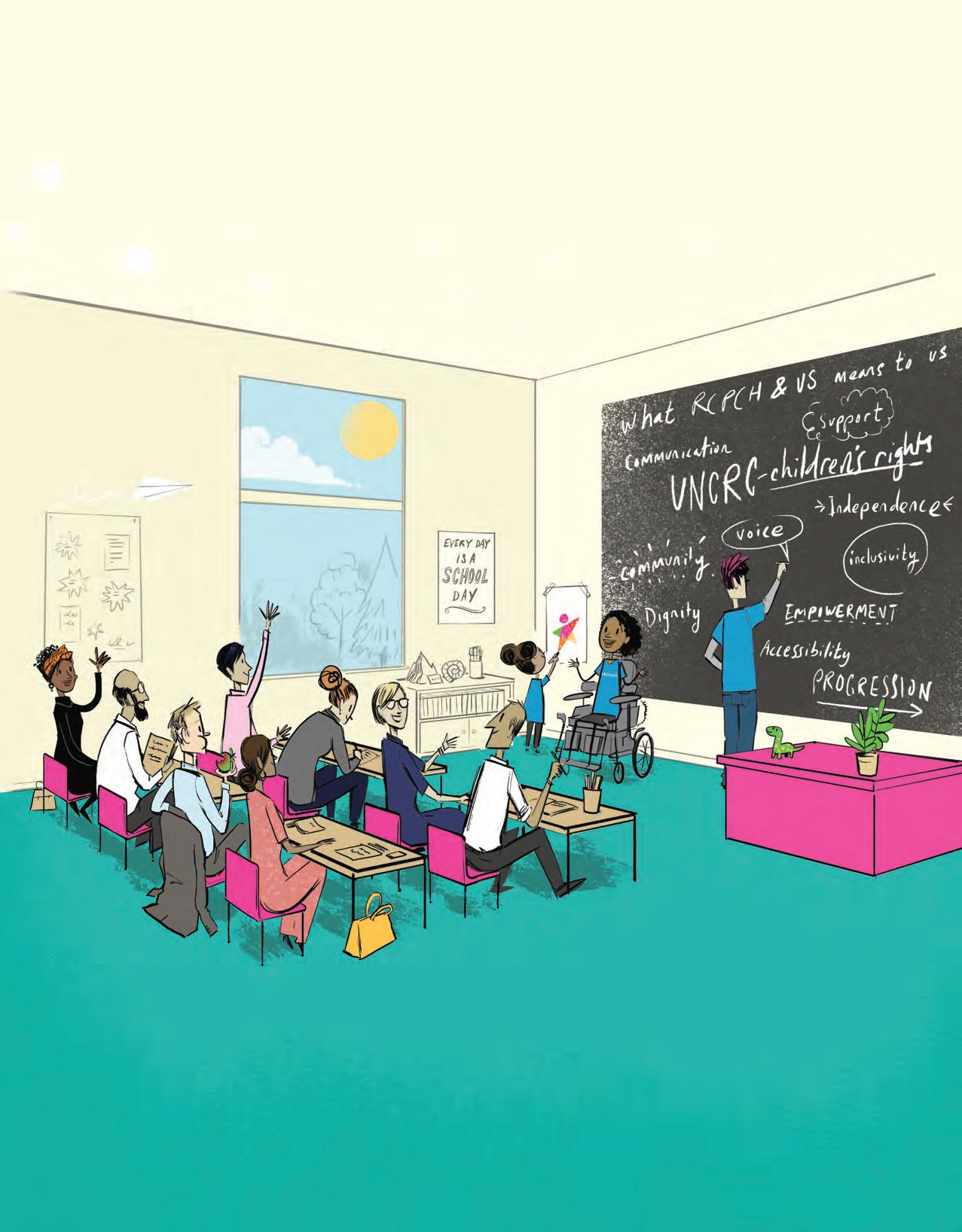
INSIDE WINTER 2022 The magazine of the
College of Paediatrics and Child Health RCPCH &Us interviews Page 11 Milestones meets RCPCH &Us Page 14 Who are RCPCH &Us and what do they do? Page 12 How children got their rights Page 23 RCPCH &US TAKEOVER
Royal
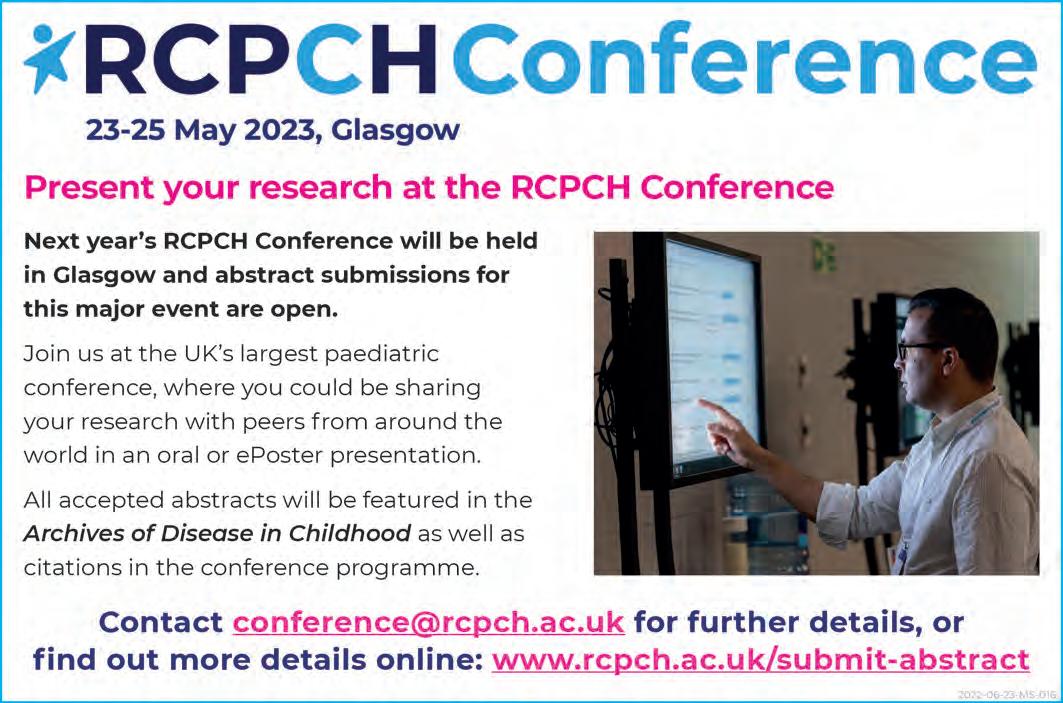
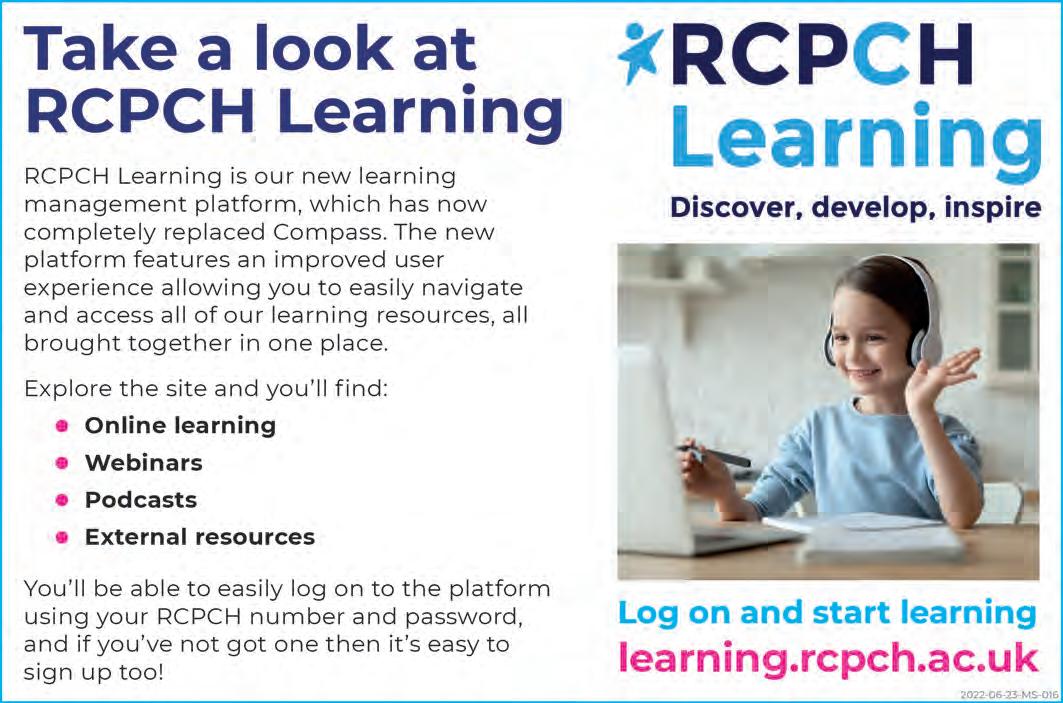
Settle down with a cuppa and our winter edition! Just in time for World Children’s Day (20 November), children are at the centre of the issue, with great features by the impressive young people from RCPCH &Us.
I particularly recommend the article on Kidzmed (p.18), having been able to train my own six year old to swallow tablets (I just wish they’d invent a similar system to teach her to swallow vegetables), and the article by Dr Grace Spence-Green (p.24), challenging us to examine the work environment and ensure it is accessible to our colleagues with disabilities; it’s all of our responsibility.
A warm welcome to Dr Emma Dyer (p.8), Chair of the Trainees Oversight Committee and Trainee Network. A veteran of the Trainees’ Committee, and a committed advocate for paediatricians in training, Emma will oversee the transition to Progress+, the new paediatric training structure coming in 2023!
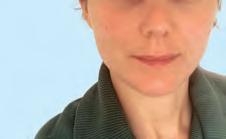
I hope you enjoy this issue – we love reading your contributions and hearing your ideas. Get in touch at milestones@rcpch.ac.uk
Dr Maddy Fogarty Hover ST6 Paediatrics
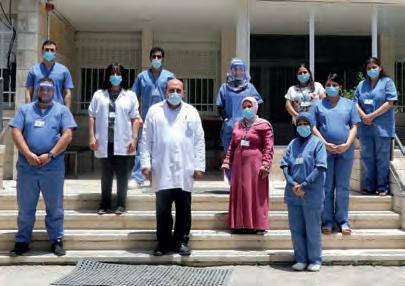

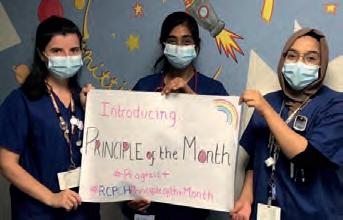
Leeds Children's Hospital PICU


@I_am_spottacus
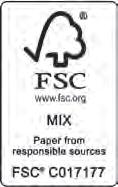
Copyright of the Royal College of Paediatrics and Child Health. All rights reserved; no part of this publication may be reproduced, stored in a retrieval system, or transmitted in any form by any means – electronic, mechanical, photocopying, recording, or otherwise – without prior permission of the publishers. The views, opinions and policies expressed in Milestones do not necessarily reflect those of the College. While all reasonable efforts have been made to ensure the accuracy of the contents of this publication, no responsibility can be accepted for any error, inconsistency or omission. Products and services advertised in Milestones are also not recommended or endorsed by the College. Readers should exercise their own discretion and, where necessary, obtain appropriate independent advice about their suitability. Royal College of Paediatrics and Child Health is a registered charity in England and Wales (1057744) and in Scotland (SC038299). Registered address: 5-11 Theobalds Road, Holborn, London WC1X 8SH. Design Manager: Christina Richmond Senior Editor: Michelle Royle Publisher: James Houston. Milestones is published four times per year on behalf of the Royal College of Paediatrics and Child Health by James Pembroke Media, 90 Walcot Street, Bath, BA1 5BG. T: 01225 337777. Advertising: Alex Brown, Head of Corporate Partnerships advertising@rcpch.ac.uk
@HLB27
KEEP
TOUCH Milestones WINTER 2022 3 Contents
IN
Winter 2022
@RCPCHTweets @RCPCH @RCPCH milestones@rcpch.ac.uk
Contact
EDITORIAL Managing editor: Aisling Beecher @AislingBeecher Editorial board: Dr Seb Gray @SebJGray Dr Hannah Baynes
Dr James Dearden @drjamesdearden Dr Dita Aswani @DrDita Dr Maddy Fogarty Hover @I_am_spottacus
We’d love to hear from you – get in touch at milestones@ rcpch.ac.uk
Editor ’s pick 16 28 9 THIS ISSUE 12 RCPCH &Us Who are RCPCH &Us and what do they do? 14 Milestones meets RCPCH &Us They discuss child health and what matters to them 16 Paediatric training in 11 principles An introduction to the training principles 18 Kidzmed Teaching children how to swallow pills 19 Digital Harm An evolving safeguarding concern 20 Define general paediatrics No two general paediatricians are the same 21 Stepping into a DGH When sub-specialty trainees take up consultant posts in DGHs EVERY ISSUE 4 Update The latest from the President, news, opportunities and more 11 RCPCH &Us Doctors are interviewed 22 Members News and views from members 27 Wellbeing The culture of wellbeing 28 International Child-neuro disability in Palestine 30 A day in the life Consultant Paediatric Intensivist Dr Peter Donnelly
The latest news and views
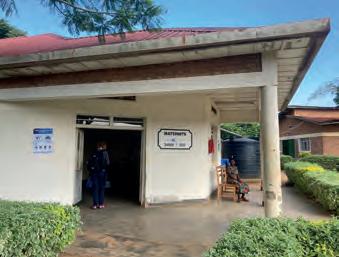


KEEP IN TOUCH
We’d love to hear from you, get in touch through our channels
Twitter @RCPCHTweets Facebook @RCPCH Instagram @RCPCH milestones@rcpch.ac.uk
A REFLECTION ON 2022 FROM OUR PRESIDENT
Dr Camilla Kingdon RCPCH President @CamillaKingdon
WELCOME TO the winter edition! I always think this issue is the one that tests our Editorial Team the most. The challenge is to create a magazine that lifts the spirits, shares great ideas, provides some escapism and brings joy at a time of year when that can be hard to find. I am confident this special RCPCH &Us edition will achieve all those things!
As we approach the end of the year, this is also a time to reflect on what we’ve achieved and consider the lessons we have learnt and how we may approach 2023. I could not be prouder of the amazing work we have collectively done this year! The challenges are enormous, but the energy, enthusiasm, optimism and sheer
determination that I see around me has genuinely kept my spirits up. Our 2022 Conference was a great success and has been the springboard for lots of important work, connections and opportunities. In the autumn, we launched a major piece of work focusing on child-health inequalities, emphasising how much paediatricians fundamentally remain motivated by altruism. This work underlines how many of us now feel empowered to think more broadly about the patients we care for and want to develop our confidence in tackling the wider determinants of child health. I was lucky enough to join our Global Team on a visit to Rwanda to meet with our colleagues there, review the impressive work being undertaken in our partnerships and attend the Rwandan Paediatric Association annual meeting. This was yet another reminder of our
many international members who are making huge strides in their countries and from whom we have so much to learn. Hearing midwives and neonatal nurses presenting their improvement work, seeing the inspiring Kangaroo Mother Care units in each hospital and many other examples of teams collaborating to improve neonatal outcomes, emphasised again how much we can learn from each other and how improvements can only be successful when clinicians on the ground are enabled to set the priorities and plan the work.
This year has taught me that we are stronger together and we can achieve remarkable things for child health and for our community of paediatricians globally, and that is the spirit that I think you will find in these pages of Milestones. With my best wishes to you all, Camilla


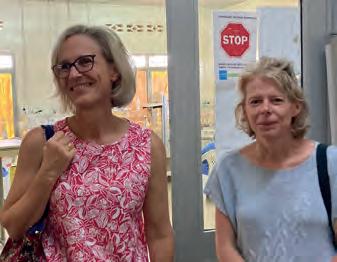
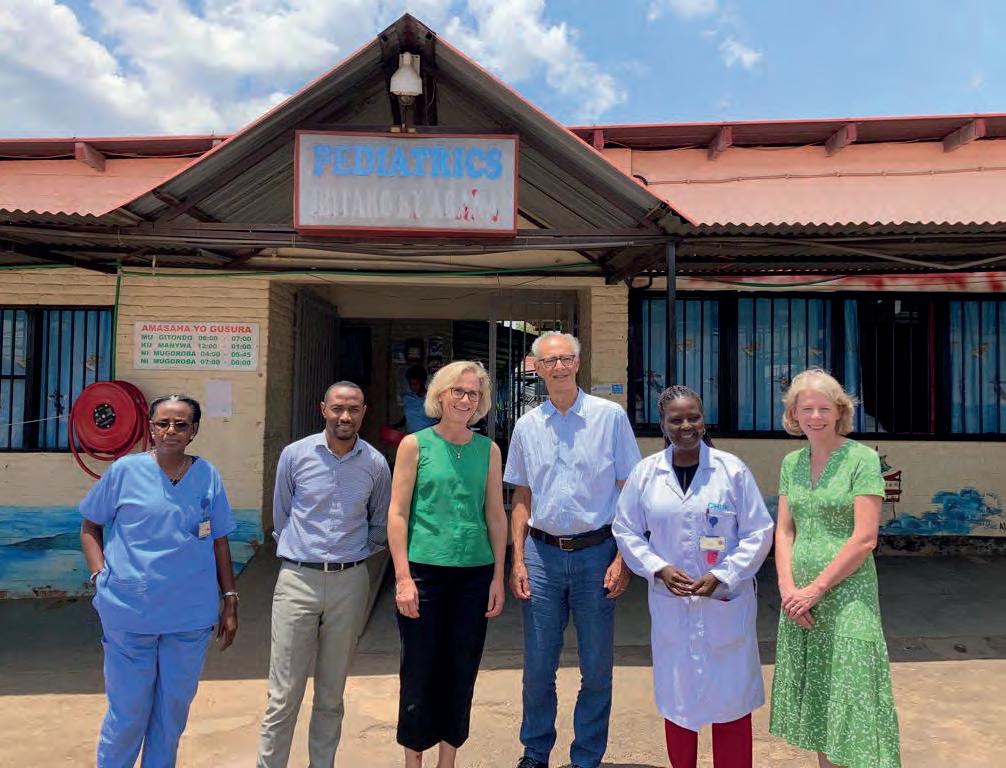
04 WINTER 2022 Milestones
Dr Camilla Kingdon and our Global Officer Dr Sue Broster visiting a teaching hospital and primary health centre in Kigali hosted by Prof Lisine Tuyisenge
Consultant in Paediatric Emergency Medicine

Sheffield Children’s Hospital NHS Foundation Trust
RCPCH Officer for Health Improvement @DrHJStewart
I AM EXCITED to introduce myself as the new Officer for Health Improvement, continuing the fantastic work of Dr Max Davie, who has left me large shoes to fill. I am a Consultant in Paediatric Emergency Medicine at Sheffield Children’s Hospital and work as a Transport Fellow for the North West & North Wales Paediatric Transport Service. I live in the Peak District with my husband and daughter. It is emergency medicine that led to my interest in health promotion. I soon noticed that a large proportion of patients were from the more deprived areas of the city and attendance numbers were increasing, with patients presenting because their life circumstances were resulting in ill health. When I, as an emergency physician, first expressed an interest in public health, it was considered unusual, but it is now recognised that the emergency department is an important place to provide health-improvement interventions. This may be some patients’ only contact with healthcare services. As a result, I was appointed the department’s first lead for health promotion and I see the Officer for Health Improvement role as an opportunity to expand on this work.
The Health Improvement Committee will be continuing our child health policy work in areas such as healthy weight, immunisation uptake and – recently – the launch of our position statement on child health inequalities driven by child poverty in the UK. This made the case for urgent action from each of the four governments to address the effects of poverty on child health, with our open letter receiving signatures from over 1,000 members of the child health workforce.
I hope that during my tenure more and more members will feel able to incorporate health promotion into their practice.
RCPCH &US 2021/2022
Paediatric workforce planning


Kay Tyerman Consultant Paediatric Nephrologist Leeds Teaching Hospitals NHS Trust RCPCH Officer for Workforce Planning @kay_tyerman



I’M HONOURED TO have been appointed as your Officer for Workforce Planning. Firstly, I would like to thank Nic Jay for the work she has done in advocating for the importance of workforce planning in the delivery of care for children and young people. I am a paediatric nephrologist in Leeds and have worked in the NHS for over 32 years, with the past 30 being in paediatrics. Looking back, I realise that I’m very lucky to be able to say that I have enjoyed and valued every job I have undertaken in training, and love my current role.
Over my consultant career, I have volunteered at the College, firstly in the Nephrology College Specialty Advisory Committee (CSAC) and over the past two years as Assistant Officer for Recruitment. These have been thoroughly enjoyable and rewarding roles and have dovetailed with my clinical work and role as a Training Programme Director in Yorkshire and Humber. They have also highlighted how workforce planning is central to everything we do in ensuring we are able to thrive in paediatrics and continue to deliver the best care possible for children and young people. Workforce planning now sits within the Education and Training Directorate.
I’m excited to be taking on this role at a time of transition, as the team brings together workforce planning with recruitment and lifelong careers. We have an opportunity now to look across the whole career journey of paediatricians – from inspiring medical students to do paediatrics, to the latter stages of a lifelong career when clinicians inspire and mentor our paediatricians of the future.
2,766 ENGAGEMENT MODULE VIEWS 1,325 PAEDIATRIC WORKERS INVOLVED IN RECIPES FOR ENGAGEMENT SESSIONS 764 CHILDREN, YOUNG PEOPLE, PARENT/CARERS INVOLVED UPDATE
Milestones WINTER 2022 05 RCPCH FACTS
Dr
Dr Helen Stewart
THE FUTURE OF HEALTH PROMOTION AND IMPROVEMENT 2 FULL-TIME STAFF 12,082 SOCIAL MEDIA/NEWSLETTER FOLLOWERS OR SUBSCRIBERS 1,580 VOLUNTEER HOURS BY RCPCH &US
Introducing our Interim CEO
Robert Okunnu Interim CEO @ROkunnu




I TOOK OVER as Interim Chief Executive Officer in mid-October following Jo Revill’s four successful years at the helm. While the College’s Board of Trustees searches for a permanent Chief Executive Officer, I will help lead the organisation during this period. When starting a new job, there’s always much to learn, even for someone who has been working at RCPCH for a few years. I joined in 2019
as Director of Policy and External
Affairs and in 2021, my portfolio expanded to include membership services, marketing and events. In navigating my interim role, I’m looking forward to discovering more about you – our members – and how we can support you through what is an uncertain time. Like many organisations, we are responding across all our operations to an environment where political, economic, social and technological change is happening with such rapidity. And heading into winter, pressures on workforce, high demand on services and the impact of the cost-of-living

crisis are all being felt intensely.
As a College, centred on our mission and vision, we know that we need to focus on the here and now as well as take a longer-term view across all our work – be it policy, research, quality improvement, children and young people engagement, global projects, and education and training. This is an important balance to achieve but we are well-served by our core purpose, which inspires us to action and positions us for the future. We remain committed to doing our very best for paediatrics and child health, today and tomorrow.
RCPCH LEADS THE WAY IN TACKLING CLIMATE CHANGE
Dr Liz Marder Community and Neurodisability Paediatrician Nottingham Children’s Hospital RCPCH Treasurer @lizmarder

I AM PLEASED to start this column with a celebration! In September, the College was ranked in first place in a climate change and health scorecard exercise, run by a group of independent doctors across different specialties. Eleven professional bodies took part. We came out on top overall – with the highest score for our advocacy work.
It is so gratifying to get some recognition for all that we have achieved and I want to take this opportunity to thank the 80 members of the Climate Change Working Group (CCWG). News about climate change can be so bleak – moments like this are an opportunity to celebrate, but also to inspire us to do more, and hopefully others to take action.
For now, however, our focus turns to the College itself, and our own footprint. In our 2021–24 strategy, we committed to achieving net zero by 2040 at the latest. To do this, we need to make our building, resources and activities as sustainable and lowcarbon as possible.

The roof top of the College building was a great place to start. Debbie Sayers, Head of Facilities, led five intrepid explorers to the top of the building. After enjoying the great view, we worked our way down to the basement looking at the building through the lens of sustainability.
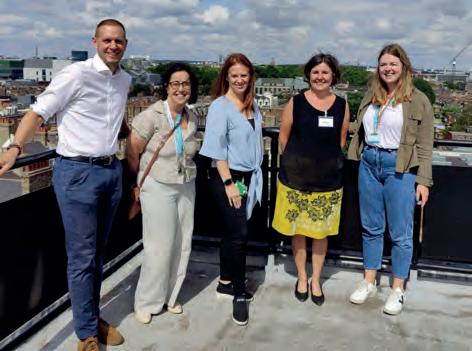
Debbie shared some of the things we have already done to reduce our carbon footprint such as recycling all our waste, replacing standard light
bulbs with LED ones, using renewable energy and closing the building on Fridays. Over the coming year, we will be auditing our current footprint and using that to set an ambitious roadmap towards net zero. We will be sharing our progress and learning along the way in the hope of inspiring many of you to make similar changes in your homes and workplaces.
Visit: www.rcpch.ac.uk/ climatechange
UPDATE 06 WINTER 2022 Milestones
Dr Liz Marder with fellow Climate Change Working Group member Dr Helena Clements and College staff on the roof top of RCPCH
The United Nations Convention on the Rights of the Child (Article 24) right to the best health possible
Staff Spotlight
 Emma Sparrow
Emma Sparrow
Invited Reviews – emerging from the pandemic
THE COLLEGE’S INVITED REVIEWS
Dr Jane Hawdon Consultant neonatologist Royal Free London NHS Foundation Trust RCPCH Invited Reviews Clinical Lead

SERVICE (IRS) was developed in 2012 as a valuable qualityassurance and improvement tool, utilising expert independent peer review to help assure patient safety, address issues of concern at an early stage and improve the quality of care in children’s and young people’s health services. With the assistance of 125 reviewers, over 94 invited reviews have been conducted across England, Scotland and Wales since 2012.
As the new clinical lead for the Invited Reviews Service, I’m looking forward to the service being back up and running as soon as possible. We had a pause that was related to the pandemic, but this allowed reflection on the service to date, a recent external review of the service and an opportunity to refine and relaunch. The first stages include reviewing and rewriting
supporting documents, in line with the external review recommendations and the Academy of Medical Royal Colleges’ framework of operating principles for managing invited reviews within healthcare. These guidance documents for healthcare organisations will be available shortly on the Invited Reviews webpage. We will then evaluate the first reviews we conduct for continuous improvement.
In the past, I have been a reviewer for RCPCH and the Royal College of Obstetricians and Gynaecologists (RCOG) invited reviews and for the Independent Reconfiguration Panel, working with multiprofessional review teams and – on many occasions –very informative public and patient focus groups.
We recently held training days for previous and new reviewers. If any members are interested in becoming reviewers in the future, please contact the Invited Reviews team at invited.reviews@rcpch.ac.uk
Visit: www.rcpch.ac.uk/ invitedreviews
Head
of Children, Young People & Engagement @Emma_rcpch
I JOINED THE College at the end of 2015, just after RCPCH &Us – the children, young people and family network for the College –launched. I felt slightly daunted but, within days of being here, knew it was a place I would be proud to work, where children and young people were firmly at the centre of everything we do.
In my role I get to travel all over the UK, speaking and working with children, young people, parents/ carers and families, so that their ideas, wishes and needs can inform and influence the work of the College and the sector. RCPCH &Us has a number of projects, workshops, roadshows or activities on the go at any one time. I also co-ordinate the RCPCH Engagement Collaborative, providing information and guidance to members, trusts, charities or Government departments on engagement and participation, as well as delivering training on engagement, safer working practices and children’s rights.
I’m incredibly proud of the energy and passion of everyone who volunteers with RCPCH &Us, and love seeing them develop, have fun, support each other and make a real difference to the lives of others.
Volunteering has been a big part of my life since I was 14 – I helped at a youth action project; volunteered in Denmark for 14 months; set up a charity, called Access Bedford with friends who are Deaf or Children of Deaf Adults (CODA) to improve inclusion for the Deaf community; and went on fundraising escapades such as swimming in the Thames with staff from the College for a limb-loss charity. I trained as a Community Development and Youth Worker, so community activism is central to all parts of my life, including being part of the Eurovision Community (yes there is such a thing!).
UPDATE Milestones WINTER 2022 07
Representing paediatric trainees
I AM DELIGHTED to introduce myself as the new Chair of the Trainees Oversight Committee and Trainee Network.
Dr Emma Dyer ST6 Paediatric Emergency Medicine Trainee Evelina London Children’s Hospital Chair of the Trainees Oversight Committee and Trainee Network @EmmaMDyer
I must firstly record my huge thanks to Laura Kelly, the outgoing chair. Laura has done an amazing job leading the committee through a very challenging time. On a more personal note, she has been a huge support as I prepared to take on this role.
One of my main priorities as the incoming chair is to assist in the transition to the Progress+ training programme leading up to its implementation in summer next year. I want to ensure that the transition is as smooth as possible, with trainees being informed and supported throughout, and that they are able to make the most of the new opportunities, improved flexibility and training that Progress+ will hopefully offer.
I am also acutely aware of the huge challenges and stresses that trainees are currently facing. The cost-of-living crisis, pay restoration and workforce shortages within the NHS are placing huge pressures on trainees, our other colleagues in the NHS, and on our patients and their families. Alongside the rest of the Trainee Network and collaborating with the College, we will be working hard to represent trainees’ views on these issues.
Having been lucky enough to work with the Trainee Network for the past few years, I know what a fantastic, inspiring and enthusiastic group of trainees they are. I am confident they will work to ensure that trainee voices and needs are heard and advocated for as we negotiate these difficult times.
I am here to represent you and am always happy to hear from trainees, or anyone else for that matter! If you have ideas, worries, questions, or anything else you’d like to talk to me about, please feel free to get in touch!
Choonara BMJ Paediatrics Open Editor-in-Chief @BMJ_PO
JOURNAL: BMJ PAEDIATRICS OPEN
PUBLIC-PRIVATE PARTNERSHIPS are often used as an excuse for privatisation of public services. Having worked in the public sector (health and education) all my life, I am against privatisation of public services. There are, however, occasions when public-private partnerships are beneficial. An example is illustrated by the collaboration between Save the Children and the pharmaceutical company GSK (see DeAngelis E et al BMJ Paediatrics Open 2022;6:e001467. doi: 10.1136/ bmjpo-2022-001467).
They worked together in Kenya to ensure access to the essential medicine chlorhexidine gel for the care of neonatal umbilical cords. Neonatal infections are a major problem, especially in low- and lower-middle-income countries. Chlorhexidine 7.1% solution has been shown to be effective in reducing umbilical cord infections. The paper describes how GSK developed and introduced a not-for-profit, quality-assured gel formulation of chlorhexidine suitable for use in low-resource settings. This is an impressive example of a public-private collaboration.
JOURNAL: ADC JOURNAL UPDATE
WHAT IT DOESN’T say in the brochure: nettle grasping. One of the privileges of being an editor is the deliverance of the ’truth’: findings that change perceptions at both individual and (I use the term broadly) societal levels.
Brown Archives of Disease in Childhood Editor-in-Chief @ADC_BMJ
Of course, the pathway to change doesn’t end with the concluding sentence of the pivotal study: it really only begins here, the route strewn with obstacles, of which one of the most sapping is implementation at policy level. Read the upcoming editorial by Ronny Cheung at the Evelina for more on this particular thorn.
Before even reaching the policy stage though, some sort of acceptance – a community rubber stamping of tacit approval – needs to be sought and, given the factionalism that plagues science, this isn’t necessarily a cake walk.
I like to think that the breadth and depth of the papers in Archives of Disease in Childhood is broad. Many have that extra ingredient, guts, touching nerves others would prefer not to, but this comes with resistance – with both lower-case and capital ‘R’s.
Take the recent publications on these subjects: high pneumonia admission rates in Lao; insights and limitations of data linkage preadmission; and global gender discrepancies in donor-recipient living liver transplant. These are brave papers, each identifying a nettle and grappling with the uncomfortable truth.
I’m comfortable with disagreement. My task is to check that the facts are robust and that their dissemination will enhance child health. I can handle the odd tricky email – and the rest we’ll do together.






UPDATE 08 WINTER 2022 Milestones
Imti
Nick
The United Nations Convention on the Rights of the Child (Article 27) right to a good standard of living
What the RCPCH toolkit means for child poverty in the UK
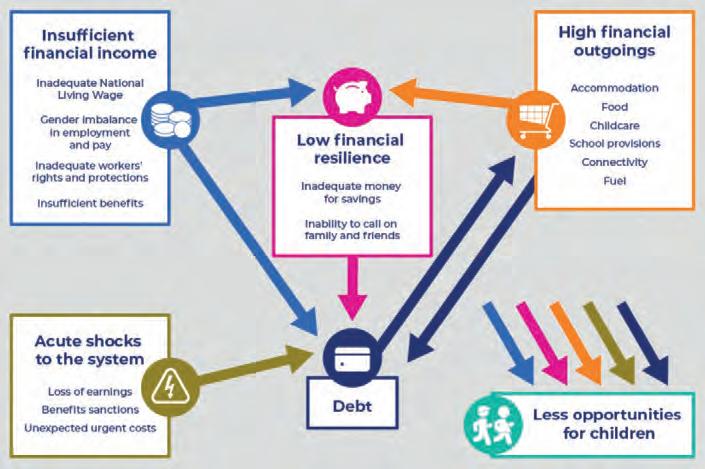
THE COLLEGE HAS produced a toolkit to address poverty-related child-health inequalities.
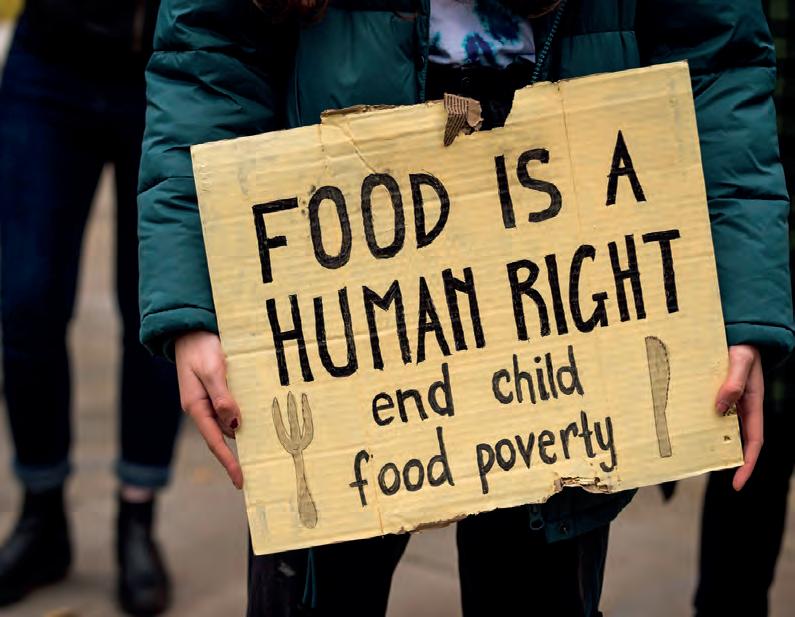
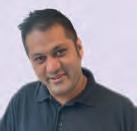 Dr Ian Sinha Consultant Respiratory Paediatrician Alder Hey Children’s Hospital @wheezylikesund1
Dr Ian Sinha Consultant Respiratory Paediatrician Alder Hey Children’s Hospital @wheezylikesund1
I was proud to watch the work of our PhD fellow Dr Alice Lee take shape, with welcome guidance from Dr Max Davie, Olivia Lam, and others at the College including, so importantly, the voice of children and young people.
The toolkit helps us strive towards two overarching, parallel goals. The first is to mitigate against the effect of poverty on child health. Are our services accessible to all? I was shocked when medical students surveyed our patients and found that the average cost of coming to clinic was £30. We must urgently poverty-proof our services in tangible ways that matter to families. However, we must be mindful
that poverty often finds a way to creep in. Poverty is pervasive, so to end povertyrelated inequality, we must end child poverty – fix the root problem. Children sometimes have necrotic lung after pneumonia. We can pour antibiotics into them, but some children only get better when the offending tissue is removed. That is how we might view child poverty – a necrotic lung that will keep causing problems, but we can take supportive measures while we fix it.
Where to begin? The toolkit leads us through the solution. It aims to help us understand inequality related to poverty. Ours may be the fifth largest economy in the world, but the wealth distribution is incredibly unequal: the median income hangs precipitously above the level required to function in society, and for the poorest quintile, it is well below this line. Mechanisms of inequality play out in front of our eyes, exacerbated by the cost-ofliving crisis, with families priced out of giving their children the best start. The toolkit gives advice on how to approach issues around health inequality in clinical settings, which is so important but may, understandably, feel uncomfortable. There is advice on quality-improvement projects, and how to harness data to make these more meaningful. Finally, there is a muchneeded section on advocacy.
It is laudable that the College is leading the way for the solutions to this awful problem. I hope the toolkit is of use to people who want to level up child health in the UK. I am particularly impressed by the vigour and determination of many ST1-ST8 paediatricians around the country – I really can’t wait to see what they achieve!
Visit: www.rcpch.ac.uk/healthinequalities
UPDATE Milestones WINTER 2022 09
Diary Dates
Listed below are some of the up and coming online courses and events. We will continue to add to this list over the coming months, so don’t forget to keep an eye on our website.
St Andrew’s Day
Paediatric Symposium
25 November
Statement and report writing – England/ Wales (Level 3) 16 January
How to Manage: Common Cardiac Problems 24 January
Effective Educational Supervision 7 February
How to Manage: Diabetes in Children 21 February
Statement and report writing – England/ Wales (Level 3) 10 March
How to Manage: Gastroenterology 20 March
How to Manage: Non-malignant haematology 23 March
Navigating the NHS as anoverseas paediatrician
Dr Gehan Salama Ali shares her thoughts on settling into the NHS Read
Effective Educational Supervision 27 March
Effective Educational Supervision 18 April
Statement and report writing – England/ Wales (Level 3) 26 May
Statement and report writing – England/ Wales (Level 3) 3 July
PODCASTS
The four episodes of our “In conversation…” series discusses the four aims of our College Strategy 2021–24, which sets out a plan to improve health outcomes for children and young people. We interview three of our Vice Presidents, Dr Mike McKean, Dr Jonathan Darling and Professor Paul Dimitri as well as our Global Officer, Dr Susan Broster.
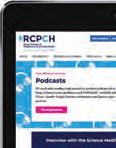
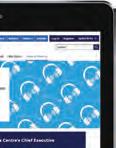
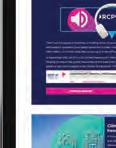
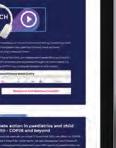
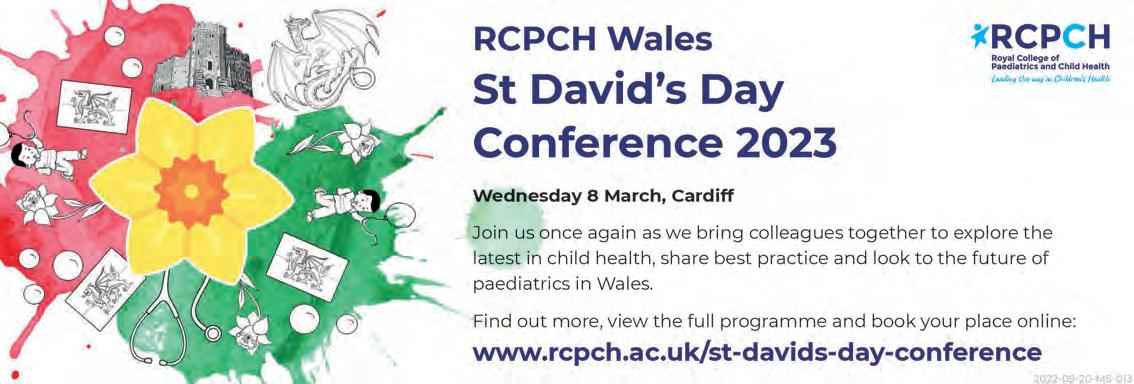

UPDATE 10 WINTER 2022 Milestones
The United Nations Convention on the Rights of the Child (Article 28) right to education
p29
more Find more dates at www.rcpch.ac.uk/ courses www.rcpch.ac.uk/ events
more See the
podcasts www.rcpch.ac.uk/podcasts
See
College’s
The United Nations Convention on the Rights of the Child (Article 12) right for views to influence decisions

RCPCH &Us interviews doctors
This summer, RCPCH &Us volunteers interviewed doctors to find out more about their jobs, their hopes and their interests. This is what they told us!
Tell us about your project with young people.
A few weeks ago I was with young people who were kayaking, diving off cliffs and jumping off walls as part of a youth residential that had lots of peer support. This empowers young people to be in more control themselves who have had a renal transplant, but also they get to see that doctors are humans too!
Dr Shouja Alam, Consultant Paediatric Nephrologist in Wales
What have you learnt this summer?
I’ve learnt about challenging poverty, and ways that we can reduce inequality in everyday practice without making families think we are judging them. Instead we ask questions about where they are in their lives and how we can help them.
Dr Carol Ewing, Paediatric Doctor in Manchester
What does engagement mean to you? Working with, whoever you are, trying to engage with people in a way so you are both trying to achieve
something and get somewhere – not just asking questions about someone’s opinions on what you are going to do, but working together.
Dr Iain Marshall, Paediatric Doctor in Sheffield
How can children and young people help with your work on climate change locally?
It’s a hidden topic – we don’t speak about
it enough as professionals. We need to start introducing this in day-to-day conversations which will then help young people to ask questions about the climate and health – like about the types of medicines we prescribe.
Dr Emily Payne, Paediatric Consultant in South Wales
Do you have a top tip for other people working with children?
A great thing to have if you are interacting with a young child, is to make sure you have a favourite dinosaur. That’s one of the things I’ve found – they are one of the most important things in the world!
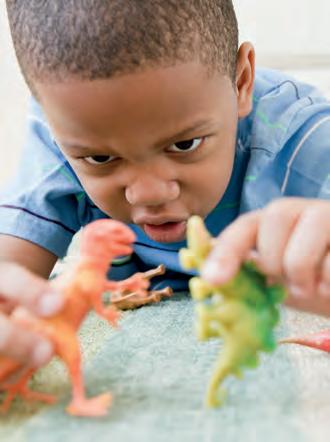
Dr Tunde Salawu, Junior Doctor in Coventry
What does wellbeing mean to you? Wellbeing for me means agency and being involved in decision-making and feeling like you have control of your own universe.
Dr Nick Schindler, General Paediatrician, A&E and Neurology in Norfolk
Thank you to all the doctors that took part and the RCPCH &Us young interviewers: Ally, Aisling, Claire, Demi, Jamie, Noor and Sohan
RCPCH &Us: The Children and Young People’s Engagement Team delivers projects and programmes across the UK to support patients, siblings, families and under 25s, and gives them a voice in shaping services, health policy and practice. RCPCH &Us is a network of young voices who work with the College, providing information and advice on children’s rights and engagement.
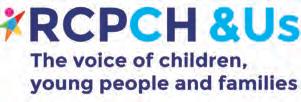
KEEP IN TOUCH RCPCH &US
ABOUT Milestones WINTER 2022 11
@RCPCH_and_Us @rcpch_and_us @RCPCHandUs and_us@rcpch.ac.uk
Knowing your dinosaurs helps to connect with young children
What is RCPCH &Us and what does it do?
, hundreds of volunteers
Echallenges, activities, projects, conferences and events. They share voices and views, help to train paediatricians, or create new materials and resources for patients, families and staff to help improve children’s and young people’s health. Here are some of the projects that have been taking place recently:
Project: Epilepsy12 Youth Advocates. Who is involved? Young people with experience of or an interest in epilepsy and specialist epilepsy nurses. What do they do? Inform the Epilepsy12 audit about patient and family priorities, create resources to help epilepsy units such as the care plan resource and the Clinic Chat Check List for support with worries and anxieties.
Find out more: www.rcpch.ac.uk/ epilepsy12-youth-advocates
Asthma &Me Ambassadors.
Who is involved? Young people with experience of or an interest in asthma. What do they do? Inform the National Asthma and COPD Audit Programme (NACAP) about patient and family priorities, create resources to support asthma care such as their new patient leaflets on going to hospital with an asthma attack.
Find out more: www.rcpch.ac.uk/ asthma-ambassadors
Project: COVID Book Club. Who is involved? Young people. What do they do? Inform the College, Chief Medical Officers (CMOs) and organisations on what matters to children and young people through the pandemic, from life in lockdown through to the COVID-19 vaccination programme.
Find out more: www.rcpch.ac.uk/covidbook-club
Project: Podcasters.
Who is involved? Young people with an interest in creating podcasts. What do they do? Plan, record and create podcasts on topics that matter to children and young people.
Find out more: www.rcpch.ac.uk/ podcasts
Project: Climate Changers.
Who is involved? Young people with an interest in climate action and health. What do they do? Consult with
with asthma, and it’s interesting. My favourite thing was creating a leaflet for different ages about what happens when they get into hospital after an asthma attack, and it’s age appropriate for different ages. Volunteering at RCPCH &Us, you really do make a big difference.”
children and young people across the UK on climate change and health, represent their views to the RCPCH Climate Change Working Group, create resources to support climate conversations in paediatric settings. Find out more: www.rcpch.ac.uk/ climatechange
Project: RCPCH Engagement Committee. Who is involved? Young people, parents/ carers and paediatricians with an interest in engagement. What do they do? Support the College to keep children and young people at the centre of everything we do, with priorities for this year being involvement in assessment in services, giving expert advice on engagement and creating an




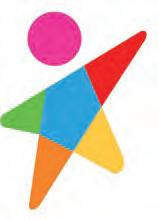
FEATURE 12 WINTER 2022 Milestones
RCPCH &Us is the children, young people and family network of the College, which brings together under-25s, their parents/carers and advocates from all over the UK to volunteer to help shape health policy and practice
“RCPCH &Us have helped to connect me with other young people who have medical conditions, and this connection has helped with the isolation I have felt at times following my epilepsy diagnosis.”
“I wanted to help other people like myself
“I wanted to change the outlook young people have on their health and the problems surrounding access to health treatment. The best project was climate changers as I got to meet so many amazing people and hear their ideas on how we can make medications and treatments more sustainable and eco-friendly.”
engagement ambassadors’ programme.
Find out more: www.rcpch.ac.uk/cypcommittee
Project: Advice for young people with health appointments.
Who is involved? Young people, paediatricians, GPs and psychiatrists. What do they do? Consulted young people on the information and advice they wanted about accessing health support in a pandemic and beyond, and worked with the Royal College of General Practitioners (RCGP), the Royal College of Psychiatrists (RCPsych), the British Association of Sexual Health and HIV (BASSH) and the College to create a resource.
Find out more: www.rcpch.ac.uk/healthappointments-advice
Project: Youth Social Action Toolkit. Who is involved? Young people and an RCPCH Ambassador.
What do they do? Created a toolkit to support projects in schools and youth groups to improve health literacy and decision making, and interviewed doctors on health topics to provide information for young people.
Find out more: www.rcpch.ac.uk/youthsocial-action
Project: Voice Champion Awards. Who is involved? Young people. What do they do? Run a national award for paediatricians, nurses and allied health professionals who support the RCPCH &Us programmes to thank them for their support and volunteering. Find out more: www.rcpch.ac.uk/voicechampion
Project: UK Paediatric Epilepsy Programme Board.
Who is involved?: Young people and parents.
What do they do?: Experts by experience are on the board to raise issues or concerns from the epilepsy patient and family community, to advocate on their behalf and support collective change – e.g. running a session on Sudden Unexplained Death in Epilepsy (SUDEP) at the recent Epilepsy12 & OPEN UK National Conference.
Find out more: www.rcpch.ac.uk/ epilepsy-board
“I wanted to volunteer to use my voice and make a long-lasting change in the community.
RCPCH &Us helped me to explore topics that matter to me. It has transformed me into a more curious person, questioning things in my community and coming up with solutions. I’ve been involved in conferences too, which has been one of my favourite moments.”
“My hope is that every young person is asked about their mood at every hospital appointment and is given the time for themselves and their families to voice any concerns.”
Project: Ethics and Law Advisory Committee.
Who is involved? Parents. What do they do?: A parent rep is on the board to raise issues or concerns on behalf of children and young people, and provide insight and challenge in discussions.
Find out more: www.rcpch.ac.uk/elac
Project: Health inequalities. Who is involved? Children and young people.

What do they do? Shared what children and young people think about staying healthy, happy and well, and what this means if you are facing health inequalities.
Find out more: www.rcpch.ac.uk/ everyone-deserves-the-world
“Seeing the true amount of work and opportunities within RCPCH to enable children’s and young people’s voices to be heard has inspired me, like through my own involvement with the COVID Book Clubs.”
Get involved!
To find how your patients can get involved, email and_us@rcpch.ac.uk
FEATURE Milestones WINTER 2022 13
Milestones meets RCPCH &Us
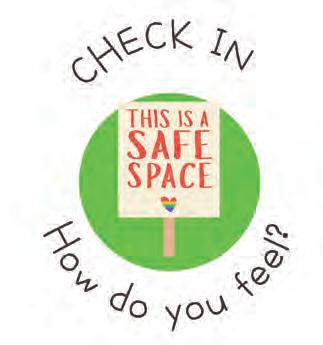



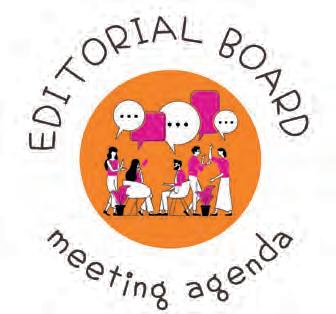
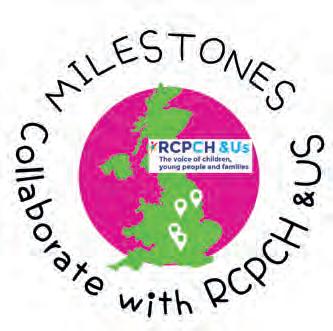
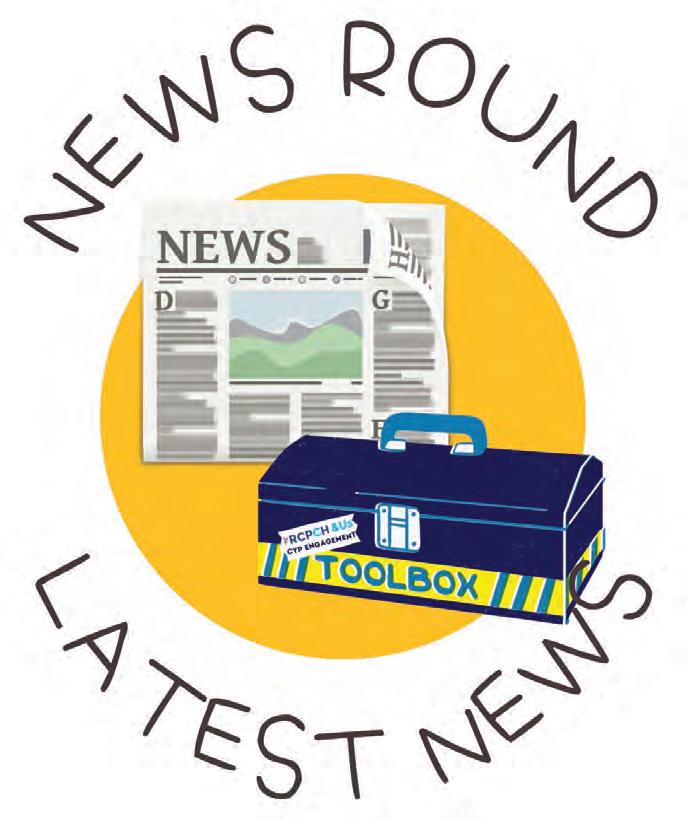
Milestones paediatricians met with RCPCH &Us reps and staff from London, Sheffield, East Yorkshire and Bedfordshire to discuss current child health topics and what matters to them
NEWSROUND
We discussed what we have heard in the news related to child health this week. We learnt from one another and gained insight into what we all know about child health. The topics we covered included: Government plans on health and social care Tweet about RCPCH toolkit on health inequalities and social determinants of health Floods in Pakistan and their impact on children and young people TV shows on mental health services
FEATURE 14 WINTER 2022 Milestones
The United Nations Convention on the Rights of the Child (Article 13) right to freedom of information and expression
WHAT MATTERS TO YOU: PERSPECTIVES OF PAEDIATRICIANS, CHILDREN AND YOUNG PEOPLE
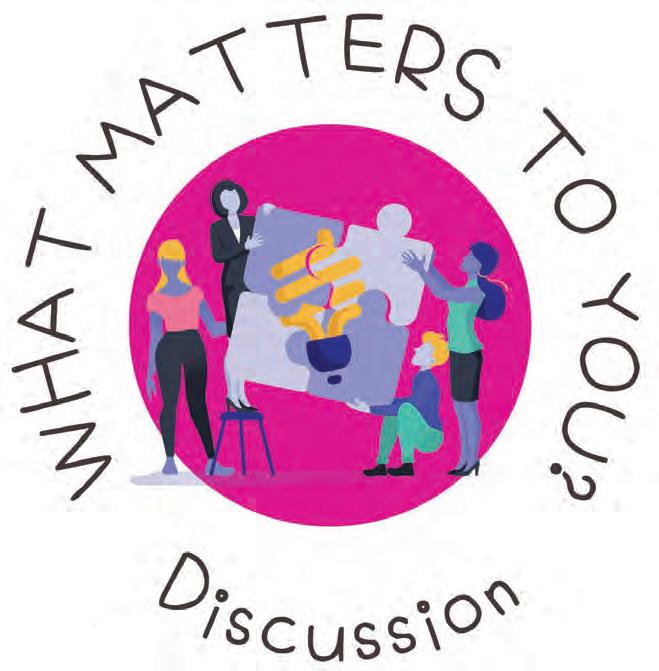
We talked about what matters to each other and where there are similarities and differences.
WHAT MATTERS TO YOUNG PEOPLE BY DRS DEE AND MADDY: Having someone who takes the time to understand their situation
Using language that is kind and understandable
Social relationships
Things in the news, like the war in Ukraine
Climate change
Appearance and how it leads to bullying
WHAT MATTERS TO PAEDIATRICIANS BY RCPCH &US, DEMI AND NOOR:

Helping children and young people get what they need, when they need it Being heard and valued for their opinion
What they do funding and budgets for Remembering that paediatricians are human and not robots
Mental health
Seeing change and making a difference
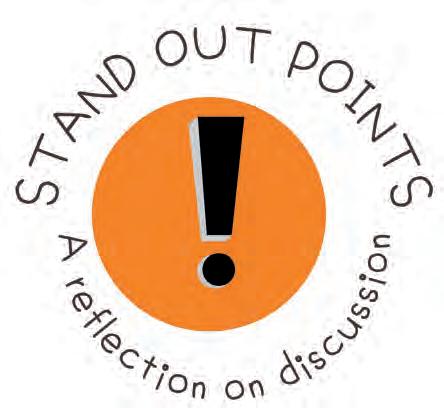
STAND-OUT POINTS: REFLECTIONS ON THE DISCUSSION
We noted the standout points from our discussion and thought about what this meant to us individually and as a group.
We highlighted things paediatricians and RCPCH &Us have the same views on, but these are not always delivered in the same way.
RCPCH &Us said: It’s nice to have the time with you guys and to know we do agree and have the same views and opinions. We do have the same wants and even though we’re on different sides, we are unified.
Doctors said: Amazed that in the middle of everything that is going on with exams, life and healthcare, that you are able to think of us as humans. That’s how we think of you, you are the centre of what we do.
Interesting that you picked up on funding and budget. It is an issue and it’s nice to know that you understand. Sometimes when we can’t provide things, it doesn’t sit right.
FEATURE Milestones WINTER 2022 15
Paediatric training in 11 principles
Preparing you for Progress+ next summer, Dr Charlotte King and Dr Sarah Berry introduce the paediatric training principles, highlighting how the best training can be delivered
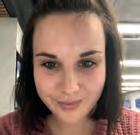
THE JOURNEY to the new training principles started years ago, before some of us even considered a career in paediatric training. Nearly 11 years later, here they are. Let’s take you back to the Greenway report, which was published in 2012. From this, it was obvious that change needed to happen within paediatric training. This gave rise to a set of principles, initially Shape of Training, then Progress and now Progress+. These have been carefully created with input from a range of people including those we are trying to help on a daily basis – children and young people and their families.
Paediatric training needed to change and the College answered this call. It was agreed that core training needs to be more inclusive, adapt to the ever-changing needs of the population and deliver integrated care for children and young people. These alone though aren’t enough. Training needs to keep up with the times. It needs to become flexible and provide more choice for all of us. We are modern workers, and our training has to accommodate that. We need to be able to work less than full time, so we can take time out for training. It needs to be family-friendly and most importantly be geared to trainees as individuals with our own paths and needs. All of this has been highlighted in the Paediatrician of the Future document.
The Progress+ principles highlight how training can best be delivered to us, the trainees. As you read through them, you will see the benefits and how each one helps provide a better working environment for both current and future trainees. These principles will allow us to deliver care based around people and not just the diseases they have. We will be able to put children, young people and the wider context of the world we live in at the heart of our clinical practice.
My two favourite principles are 1 and 11. Principle 1 states that: ‘Every patient encounter is a learning opportunity’, which highlights that although you need to take control of your own learning and question why you are doing certain things for your patients, your trainers/supervisors are also responsible for making sure that when
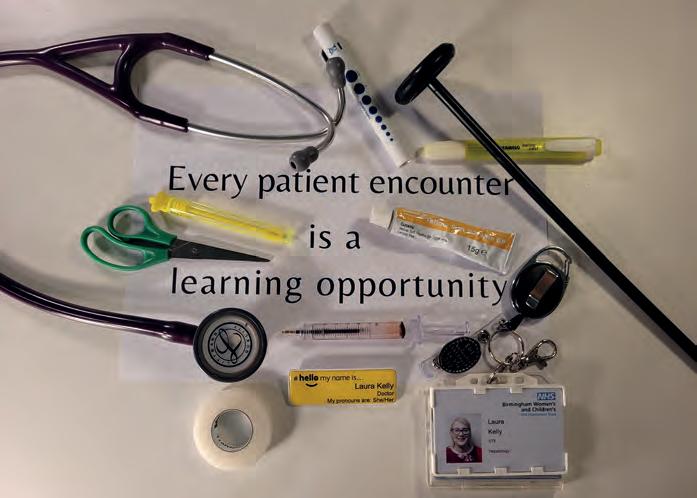
you see patients, you have a chance to improve your knowledge and develop as a paediatrician.
Principle 11 covers the idea that progression and length of training are personalised and flexible. Each of us has different factors that influence our priorities. For me, the opportunity to personalise my training to suit my academic aspirations is important. This principle helps to highlight that we are not all horses but zebras and should be treated as such throughout our training, while helping to support us as we get to grips with the curriculum and progress through training. One mould may work for the majority of the time, but it needs to be able to bend to match the winding path I may take on my journey to complete training.
FEATURE
16 WINTER 2022 Milestones
Dr Charlotte King ACF ST1 Paediatrics Alder Hey Children’s Hospital
@0695King
Dr Laura Kelly dives into her pockets for principle of the month 1
HETHER you are a medical student or a consultant, work in the neonatal intensive care unit (NICU) or community paediatrics, we all need to adapt and evolve with the constantly changing landscapes. Each of these 11 principles sparks brilliant ideas of how small changes in our individual and multidisciplinary team (MDT) practice can make significant improvements in the care we deliver and training opportunities available.
The principles are full of children’s and young people’s novel ideas of how we can champion changing healthcare for them, or as they put it, ideas ‘to help you to help us’. The video resources in principle 4 are inspiring insights from RCPCH &Us volunteers into why engagement with our patients is essential. They highlight how any patient encounter can be improved through active listening, assessing for accessibility and providing resources in a format that works for them. The epilepsy Clinic Chat Check List is another resource full of tips and ideas to ensure any service (acute or out-patient) meets the patients’ needs.
WOne of my favourite aspects is the emphasis on empowering supervision. The importance of recognising that high-quality training doesn’t happen by accident is echoed throughout principles 7, 8 and 10. Post-COVID, there are significant concerns that this is getting lost and service provision prioritised. As wonderfully described by Dr Laurent in principle 7, “medicine is an apprenticeship”. So much is learnt on the job through experience and it is vital that we get back to this mindset. With excellent supervision, key training opportunities can easily be obtained throughout daily practice. Some specific examples include training clinics, traineeled MDT meetings, peer teaching and longitudinal supervision.
In some way, all the principles inspire us to create a working environment where everyone can be the best versions of themselves. This can be tough at times with the long hours, challenging cases and increasing demand we experience. However, principle 9 discusses how we can boost morale and job satisfaction through some simple examples: FriYay ‘no business talk’ cake lunches; excellence reporting; and ‘The Three Ps’ video, which encourages ways to restore positivity, perspective, and pride back into our practice and training. In Northern Ireland, GREATix and employee of the week are some examples of excellence-reporting systems that have been used to boost morale and highlight some of the exceptional MDT work that occurs daily. Introducing systems like this encourages trainees to reflect on areas of outstanding practice and human factors, be it their own nomination or others’ work, providing opportunities to link to multiple domains in the RCPCH curriculum.
We hope that, through these principles, we have encouraged you to get involved, be creative, work together, share what you find and most importantly have fun.
Visit: www.rcpch.ac.uk/ progressplus-principles
Every patient encounter is a learning experience
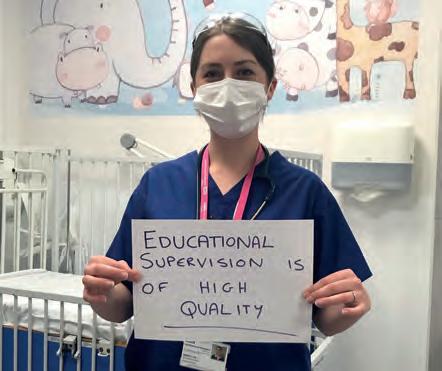
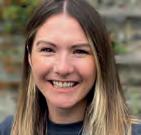
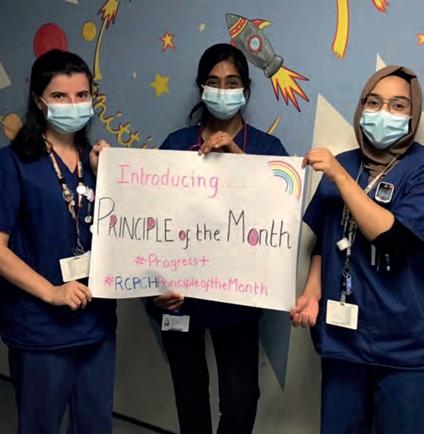
Complex care provides rich learning opportunities
Clinical reasoning skills are explicitly taught within training Patients and families are heard
A biopsychosocial approach is applied at all times
Leadership skills are developed and nurtured
Training time and learning opportunities are prioritised
Educational supervision is of a high quality and provides consistency
Morale and job satisfaction are improved
Assessment is used as a learning tool
Progression and length of training are personalised
Dr Sarah Berry ST4 Paediatrics Royal Jubilee Maternity Hospital, Belfast
FEATURE
@Sarahberrry
Milestones WINTER 2022 17
Dr Arpana Soni and her colleagues introduce the principles
1 2 3 4 5 6 7 8 9 10 11
Dr Emma Dyer, Chair of the Trainees Oversight Committee and Trainee Network, with principle 8
Progress+ training principles:
KIDZMED and the art of pill swallowing
How you can teach children and young people how to swallow pills
How it started
You need data
Dr Emma Lim Consultant Paediatrician Great North Children’s Hospital,
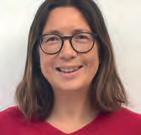
Newcastle upon Tyne @ejlim8
It started with a corridor conversation between myself, Dr Yincent Tse one of our renal consultants, and Nicola Vasey, our lead pharmacist, when I asked them: “Why don’t you teach your patients how to swallow pills?” I had been trained in the art of teaching children and young people to swallow pills by the legendary HIV team at St Mary’s Hospital, London. Children with HIV had no choice, antiretroviral syrups are disgusting, and many formulations only exist in pill form. These children routinely swallow pills from around four years of age. It was a classic case of ‘NHS silo working’, I never realised that many paediatricians did not know how to teach children to swallow pills, and so the KIDZMED project was born.
We started by collecting data (you need figures and numbers to sell a project). We trained the renal team and converted all their patients over five years old from liquid formulations to pills. There were a few surprises in store. In the first week Yincent had converted five patients, I congratulated him. He looked a bit shifty and replied, “Well I asked them if they knew how to swallow pills and they just said ‘yes’!” That was our first lesson – change prescribing habits. Simply ask if they can swallow pills and use pill formulations as standard. Why should you do this? That was the second surprise –we converted 21 renal patients and saved the trust almost £50,000 a year in recurring costs and that was not even considering all the benefits to the patients.
Why are pills better?
So how does swallowing pills benefit patients? Many liquid preparations taste bad and contain sugar and preservatives. Pills are more acceptable and children who swallow pills have better adherence to medication. For families and carers; pills have a longer shelf life and do not need to be stored in a fridge. Pills are easier to transport and can be taken on holiday (think about flights!). For prescribers; pills are less prone to written errors and can be prescribed in large quantities. For pharmacists; pills are more commonly stocked in local pharmacies. That means savings in space, cost, transport and ease of collection. All round more sustainable and better for the environment.
What’s KIDZMED?
KIDZMED is a programme developed for multidisciplinary teams to teach children and young people how to swallow pills. It
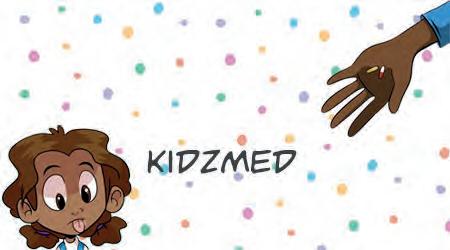
was set up at the Great North Children’s Hospital, Newcastle, and has won the NHS Sustainability Award, the HSJ Value Award and the Bright Ideas in Health Award. We developed a 15-minute e-learning session for healthcare professionals, using an evidencebased, six-step technique. KIDZMED is on the national e-learning for health website and includes resources like posters, certificates and information in different languages.
What do you need to do?
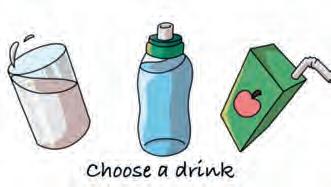
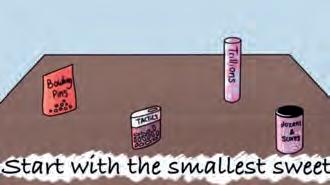

We challenge you to try our method (using a pop-top bottle) and then teach somebody how to swallow a pill. We’ve held sessions for nursing, pharmacy and medical students. We’ve taught ‘face to face’ and online from Edinburgh to Malaysia! We collaborate with Alice McClosky and the fantastic academic pharmacy team at Liverpool John Moores University – even branching out into adults. If you want more advice contact us. None of this could happen without our brilliant team Pharmacist Nicola Vasey, Consultant Dr Yincent Tse, Sister Ailsa Pickering and Lisa Clark, Pharmacy Technician.
Swallowing pills is an importance life skill for any child or adult. We would never think of dispensing an inhaler without explaining how to use it, so why do we give out pills without explaining how to swallow them?
Visit: www.e-lfh.org.uk/ programmes/kidzmed
Listen to the podcast: www.rcpch.ac.uk/pill-swallowing
FEATURE
18 WINTER 2022 Milestones
Digital online harm – an evolving safeguarding concern
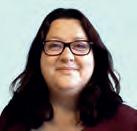
The digital world is ever expanding and has positive and negative impacts; in this article the evolving safeguarding concerns are discussed
THERE HAVE been many things which have focused the mind during the pandemic –and the hidden harm to children, young people and families is a sad fact. The swift move to online learning and support from teachers has been incredible. However, there are negatives, and we are now familiar with ‘digital poverty’ and the evolving and more nuanced harms from social media content and use. The Online Safety Bill introduced by Government has highlighted issues of accountability and responsibility.
We need to know more and understand what’s out there and how it’s being used by those that would harm and how it harms in its own right, recognising emerging threats and proactively supporting families.
I was lucky to work with two young people who have lived experience and helped develop resources and training.
‘DIGITAL HARM’ encompasses all negative outcomes associated with the use of digital devices and the internet, including physical and mental health outcomes and safety concerns. Physical impacts are more recognisable –the effect of blue light on sleep, increased
screen time instead of physical activity, and a link to developmental delay.
For some children and young people, excessive screen time may reflect underlying emotional health struggles such as loneliness, poor self-esteem, or anxiety. However, the online self is built with an audience in mind; users feel pressured to live up to unrealistic expectations, relying on superficial likes and follows for self-assurance in preference to building healthy and reciprocal relationships in the real world.
The most publicised concern, perhaps, has been the increased accessibility to inappropriate and harmful material online. From my experience, even within a supervised CAMHS setting, digital harm is a pressing issue, with many inpatients communicating via ‘secret’ group-chats.
Cyberbullying is also a new, yet familiar concept, and social media provides a further platform for this to take place, with subtypes of cyberbullying such as trolling constantly evolving.
With user-friendly designs and minimal safety measures e.g. age verification, almost all young people create their own social media accounts. This lack of verification means that you can never truly know who you are connecting with. This makes children vulnerable online, creating several safeguarding concerns.
Teenagers often tell adults “you don’t understand”, but an up-to-date awareness of the digital world would go some way to breaking down this barrier. Incorporating more thorough questions about digital harm into the well-recognised HEADSSSS assessment will allow further insight into the young person’s online behaviours, allowing identification of risks and offering support.
Arthur Joustra


F1 Doctor Queen’s Medical Centre, Nottingham @Arthurjaap
IT SHOULD be the aim of paediatricians to empower young people to take responsibility for their own online safety by understanding and acknowledging the dangers of the internet and promoting open and non-judgemental discussions with trusted and informed adults. I’ve put together some tips to navigate the harms of online use with young people:
There are negative impacts of screen time and social media on children’s physical and medical health.Ask about online use when taking a history.
Empower young people to take responsibility for their own online safety, by providing an awareness of the dangers of the internet, whilst promoting open and non-judgmental discussions with trusted and informed adults.
Recognise digital harm and red flags for abuse within paediatric services and address them with children, young people and families.
Providers should have robust systems in place to report digital harm related safety incidents.
Consider the impact of digital poverty on education, socialisation and selfesteem.
Visit: portal.e-lfh.org.uk/ Component/Details/776660
Dr Vicki Walker Consultant Paediatrician
Sherwood Forest Hospitals NHS Foundation Trust
Dr Lauren Quinn
F1 Doctor Kings Mill Hospital, Sutton-in-Ashfield @laurenquinn1998
Dr
FEATURE Milestones WINTER 2022 19
How do you define general paediatrics?
No two general paediatricians are the same, according to Dr Peter Heinz, who gives us his view of what constitutes acute and general paediatrics




GUESS I knew pretty early on: the pitying glances from my fellow trainees and the resigned shaking of heads at my annual training review for not yet having found the sub-specialty in which I would be spending the rest of my professional career in.
In truth, I did enjoy each and every subspecialty training placement (to an extent). I appreciated learning new skills and having to adapt to new challenges, only to hit a state of boredom once the routine had set in.
When I think about it, I always felt most at home in the paediatric emergency department and on the post-take general paediatric ward round, and so it was only natural that I would be emerging from years of paediatric training as an acute and general paediatrician.
Fast forward more years than I care to count, and we have moved on from general paediatrics as the smallest common training denominator, typically a label perceived if not reserved for trainees that
Idid not manage to achieve sub-specialty qualification. There is now a syllabus and training programme for level 3 general paediatrics and a set of competencies which recently have undergone another revision which is unlikely to have been the last for a number of reasons.
You may or you may not have read the definition of what a general paediatrician is on the College’s website, but in practice no two general paediatricians are the same. Working in acute and general paediatrics requires both a certain set of skills but also an attitude or as I would prefer to call it a ‘philosophy’, that differs from more organ/ age/disease focused specialties and which proves surprisingly difficult to capture in a list of learning outcomes.
Being flexible
Holistic care is supposed to be the defining feature of general paediatrics but many of my subspecialty colleagues would be rightly offended by the suggestion they were not considering this too. So here is my unashamedly personal interpretation of what constitutes an acute and general paediatrician. Dealing with undifferentiated presentations involves a degree of acceptance of diagnostic uncertainty paired
with robust clinical risk management. Health care is becoming increasingly complex and the role of deciding when it is appropriate to escalate investigative processes and when to prevent patients from going down the rabbit hole of potentially invasive yet irrelevant interventions often falls to a general paediatrician. A great deal of adaptability makes general paediatricians often the first choice for leading new service developments and management tasks. Increasing complexity of our patients’ medical and psychosocial needs requires a great deal of effective communication and coordination between a number of providers reaching well beyond health care, especially in times of acute crisis. If I had to summarise this in one word, it would be flexibility.
However, with great flexibility comes great fatigability and this is where I would like to point you to the support structures that are available and required for acute and general paediatricians to work at their best. The College does recognise the role of acute and general paediatricians and is committed to supporting development of general paediatrics as a sub-specialty in its own right and to provide the regulatory scaffolding that underpins (lifelong) training and career development. GAPR-UKI (General and Adolescent Paediatric Research in the United Kingdom & Ireland) has evolved as a research entity run by and providing answers for busy general paediatricians. Finally, if you have not done so already, I would like to invite you to join the BAGP (British Association of General Paediatrics) to actively shape the future of acute and general paediatrics.
Visit: www.bagp.org.uk
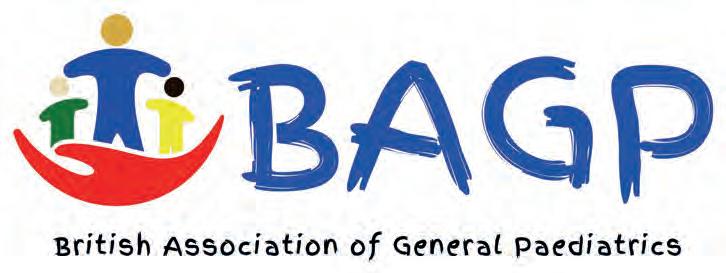
FEATURE
20 WINTER 2022 Milestones
Dr Peter Heinz Consultant Paediatrician Addenbrooke’s Hospital, Cambridge
Stepping into a district general hospital setting
What happens when sub-specialty trainees take up consultant jobs in district general hospitals?
AVING FINISHED MEDICAL school, navigated interviews and rounds of speciality training, some people choose to subspecialise further. Every year a number of doctors have the opportunity to undertake RCPCH sub-speciality training in their chosen field. The unique skills learnt during these training programmes are phenomenal. Being taught by the best in their fields, they give the individual a lifelong skill-set to build upon within their chosen speciality and this is recognised on the GMC register.
The paediatric training pathway itself can involve plenty of travelling within your deanery, and for sub-specialty training even more traveling outside of your deanery is often required. Consultant posts nearby where you wish to be in the country simply may not be available when the time comes for the prestigious CCT date, whether that be in a secondary or tertiary care setting. I know of several trainees, like myself, who have had the pleasure of joining district general hospitals (DGHs) in general paediatric consultant posts after their CCT. I wanted to highlight this small subset of new consultants stepping into DGH settings, and the specific knowledge and skills they may bring with them to their new teams.
HChances are, no one in their new setting is likely to have the same skill mix and knowledge within their specialist field, and that poses wonderful opportunities for service provision and development within the secondary care setting.
I did this in paediatric rheumatology. I was met with enthusiasm in my consultant post, which is conveniently near to home. With a resident-on-call contract, I can be home for more of the important day-today family life commitments like school drop-offs and pick-ups. I was encouraged to develop our paediatric rheumatology service by my team and local network. We now provide joint injections on our day unit, regular immunoglobulin infusions for those with juvenile dermatomyositis, infliximab infusions for those with sarcoidosis and pulsed methylprednisolone for those with uveitis.
I am active within the local tertiary network and wider paediatric rheumatology community, supporting and advocating for the paediatric rheumatology services where I can, alongside my general paediatric commitments of which there are many.
Sub-specialty trainees
That is not to say that sub-specialty trainees can necessarily be utilised to their full potential in general paediatric contracts and secondary care settings, understandably. I am limited in what medications I can prescribe due to funding
and monitoring arrangements; I cannot look after complex multisystem diseases from beginning to end as we don’t have the tertiary supporting teams on site such as paediatric cardiology/PICU/renal and respiratory teams amongst others.
When I phone my own delightful tertiary rheumatology colleagues to refer them a patient, I relish the conversations. It is a pleasure and a privilege to provide the care that I do, within the limits of my role, both as a paediatric rheumatologist and general paediatric consultant. My general commitments do mean that I have had to find dynamic ways of keeping on top of the speciality patients’ caseload, especially those who are immune modulated.
Organising the patient prescriptions and blood test monitoring, feeding back results to families with any needed alterations to doses whilst working regular night shifts and managing the general paediatric patient caseloads poses its own challenges.
I would encourage all to welcome new colleagues with the same enthusiasm as I was. A great example was set by my team and tertiary network, for which I am very grateful. Starting a consultant role is exciting, nerve wracking and often this involves stepping into an already established team who know each other inside out. Take the time to get to know what your new colleagues bring to the table, and think dynamically about how they may utilise those, including any subspecialty training!




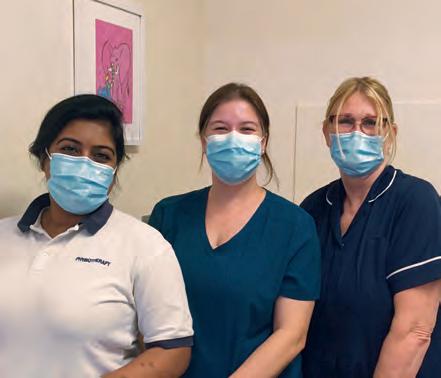
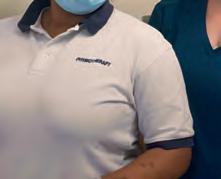
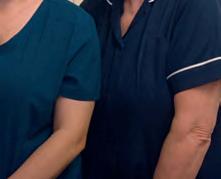
FEATURE
Milestones WINTER 2022 21
Dr Lisa Bray Paediatric Consultant University Hospitals Sussex NHS Foundation Trust
Dr Lisa Bray with physiotherapist Binita Shah and Children’s Outpatient Sister Linda Collins
The latest member news and views
Have You Used MindEd Recently?
THIS YEAR
MindEd turns 10!
With children’s mental health presentations on the increase during and after the pandemic, I believe that MindEd should be known to and used by all who care for children, and especially paediatricians.
MindEd is a free e-learning resource aimed at assisting professionals and members of the public with evidence-based information about children and young people’s mental health.

MindEd for Families was launched in 2014; this website section aims to support parents and carers in understanding children’s mental health. This can help improve psycho-education conversations between members of the public and clinicians, teachers and others supporting young people.
 Dr Alistair Thomson Consultant Paediatrian Mid Cheshire Hospitals NHS Trust Chair of the MindEd @MindEdUK
Dr Alistair Thomson Consultant Paediatrian Mid Cheshire Hospitals NHS Trust Chair of the MindEd @MindEdUK
MindEd now has over 450 modules on a range of topics related to mental health. All content is written by experts with the help of parents, carers and young people who have lived experience of the issues discussed. In 2021, for example, MindEd launched four interactive, skills-building modules for schools and the public on suicide and self-harm prevention. These modules include videos where users hear from young people: these can be used for individual or workshopbased learning. Professionals can create their own account if they would like to track their learning or download certificates.
There’s more! In 2020, in response to the pandemic, MindEd developed a new format of e-learning: MindEd’s Top Tips provides quick access to wellbeing advice to NHS and care staff, staff working with children and young people, and Blue Light Services staff. MindEd also created the content for the Wellbeing for Education Return programme, a joint initiative from the Department for Education, Department of Health and Social Care, Health Education England, NHS England and Public Health England, which supports staff working in schools and colleges to respond to the additional pressures or emotional turbulence that some young people (or their teachers) may be feeling during the pandemic.
Content is up to date and congruent with the government’s latest policy guidance and national training requirements. MindEd resources are relevant to all who work as paediatricians. I invite you to have a look and acquire some evidence-based CPD online. And don’t forget to recommend MindEd for Families to parents, carers and young people themselves.
Visit: www.minded.org.uk
KEEP IN TOUCH
We’d love to hear from you, get in touch through our channels
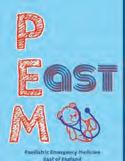
Twitter @RCPCHTweets Facebook @RCPCH Instagram @RCPCH milestones@rcpch.ac.uk
PEMEast IS THE Paediatric Emergency Medicine Educational Network in the East of England (EoE). We are thrilled to have celebrated our first anniversary.
PEMEast was inspired by a small group of PEM trainees and consultants in the EoE training region looking at a way of bringing together the PEM community and those aspiring to PEM as a specialty. This was well-timed with a drive from the national PEM trainee group who were standardising the variation in education and clinical practice in the UK. The combination of trainees and consultants from RCPCH and the Royal College of Emergency Medicine (RCEM) resulted in a unique and focused collaboration that began delivering high-quality monthly educational and operational meetings in the EoE.

To date, the PEMEast committee have co-ordinated monthly online teaching sessions covering paediatric trauma, paediatric major haemorrhage, teenage pathologies, haematology and oncology emergencies and paediatric orthopaedic injuries. Experts have contributed to topical panel teaching and discussions, for example, following the publication of the revised algorithm for status epilepiticus.
We held our first virtual conference ‘Preparing for Paediatric Retrieval; A to E’ as well as delivering the region’s first paediatric trauma simulation day ‘Beyond APLS and ATLS’.
Dr Annika Adodra
Locum Paediatric Consultant Luton and Dunstable Hospital @PEM_east
Our mission is to provide highquality PEM education. I am proud of our PEMEast team in paving the way for this unique collaboration between the Royal Colleges. The network of good working relationships will, no doubt, be taken forward into their consultant lives and ultimately benefit our patients attending paediatric emergency departments.
If you would be interested in joining the committee, delivering an education session or if you have any questions, please email pemeast.network@gmail.com
22 WINTER 2022 Milestones
PEME
ast
HISTORY TAKING: HOW THE CHILDREN GOT THEIR RIGHTS
Rainbow cupcakes









LIKE ME, I am sure children bring much joy to your working and personal lives. Their innocent yet cheeky nature is what drew me to paediatrics in the first place.

 Dr Richard Daniels Paediatric Registrar (OOP) Humbl @DrRDaniels
Dr Richard Daniels Paediatric Registrar (OOP) Humbl @DrRDaniels
I DON’T THINK I’d ever really understood responsibility until I was handed my first progeny and we had to come up with a name for this mewling mass of matter. We had the power to literally shape human destiny via nominative determinism of another life. We had a shortlist and then had to cross-check them against Fortune 500 CEOs and cultural icons and hope we weren’t handicapping their life too much before it had really begun.




With hindsight, this was clearly nonsense, proven by my research into the subject of this lesson, Eglantyne Jebb. Eglantyne appears to be a family Anglicisation of a lovely Irish name. Or alternatively, means ‘needle’ in Latin. Either way, she’d definitely have had a tough time at school. Born into a well-off, socially conscious, highly feminist family in Shropshire in 1876, Lil’E was surrounded by relatives engaged in public service.
She went to Oxford at a time when very few women did, wanting to become a teacher, but ended up taking an unplanned leap into social care to look after her ailing mother, and then children in need of assistance.
After WWI, she co-launched Save the Children in the UK, and then moved to Geneva to run the International Save the Children Union. She was ahead of her time in another way, and to ensure the needs of children remained in the spotlight, in 1924 she wrote The Declaration of the Rights of the Child and forced it through the League of Nations. Now superseded by the Convention of the Rights of the Child, which 196 of 197 UN member nations have signed up to, she has ensured that children have a status in international law for nearly 10 years.
 Dr Ashish Patel
Dr Ashish Patel

ST8 Paediatric Nephrology Birmingham
Children’s Hospital
@DrKidneyAsh
INGREDIENTS

When I asked my patients what they liked to bake, it seemed to involve the classic cupcake. Light, fluffy and easy to make, they are a great bake for children to get involved with. Topped with buttercream or icing, they are perfect to whip up on a rainy day. What better way to enhance them further by adding one or all the colours of the rainbow!



(MAKES 12)
Cupcakes 190g soft unsalted butter 190g caster sugar 190g self-raising flour 3 eggs
¼ heaped teaspoon bicarb soda 2½ tablespoons whole milk ½ teaspoon vanilla extract
Buttercream 100g soft unsalted butter 200g icing sugar Pinch of salt ¼ teaspoon vanilla extract 1–2 tablespoons whole milk
Instructions
1. Sieve your caster sugar, self-raising flour and bicarbonate of soda into a large bowl and mix together. Add the unsalted butter and eggs. Mix with a stand/hand mixer or spoon until it comes together.
2. Mix your vanilla extract and milk together and add to the mixture and mix again until fully combined.
3. Divide the batter between six bowls (or the amount of colours you want).

4. Add a very small amount of colour paste to each bowl of batter using a toothpick and fold through until combined to avoid losing too much air. I went for six colours.
5. Place 12 cupcake cases into your cupcake tray (you can also just grease the tray and not use cases). Add a dollop of each coloured batter to each cupcake
case. It doesn’t matter about the order, but divide equally.
6. Bake in the oven at 170 degrees for 18–20 minutes. You will know they are done when the top springs back if you push on them. Allow the cupcakes to cool.
7. To make the buttercream, whip the butter with a stand mixer for five minutes on medium/high speed until light in colour, soft and airy. Add the sifted icing sugar in two lots until fully combined with the butter. Then add a pinch of salt, vanilla extract and gradually add the milk. I add one tablespoon at a time until it is at a consistency that is easy to pipe.
8. Add the buttercream to a piping bag with a star nozzle attached. Pipe on top of each of the cupcakes. Sprinkle with any optional toppings you like. Continue to spread the love of baking! Enjoy!
MEMBERS Milestones WINTER 2022 23
How can improving accessibility enable paediatricians to thrive?
I HAD THE normal anxieties before starting work last year, but with the added pressure that I am also a wheelchair user.
Dr Grace Spence Green FY2 St Thomas’ Hospital, London @gspencegreen
I often, both figuratively and literally, must force my way into rooms to be listened to, to be respected, to be taken seriously. I must brush off the strange looks, the odd or inappropriate comments, the palpable discomfort that my disability can bring to people by just my mere existence. When I started my job, I felt quite vulnerable having to disclose my health needs and describing in detail what I could not do in the current work environment.
Framing it in the context of social model of disability rather than the medical model helped to shift my perspective. For example, rather than “I can’t push up that ramp”, it’s that “the ramp is too steep for me”. Placing the onus on the external environment to change rather than myself really helped with my self-confidence. I felt supported by the adaptations that were put in place to improve access for me. It was brilliant to see these changes, however most were specifically tailored to my disability, and when I would leave a department, these adaptations would be removed. I understand there are cost and resource restraints, but it was frustrating to see access viewed as a temporary fixture.
I appreciate colleagues who valued my autonomy and were able to look
critically at the environment to structure things in a way so I could do the most independently. It can be exhausting having to advocate for myself all the time, so when colleagues take on some of that burden its brilliant. By being proactive they are treating access as a shared responsibility. I have learnt that able-bodied allies are vital in making healthcare more accessible.
When I was first injured, I looked back at my time as a patient and as a medical student. I could not recall ever seeing a visibly disabled doctor or healthcare professional before. There are so few of us that I tend to stick out among the other hospital staff. The downside of this is at times I feel put on a pedestal, and not seen in the context of my community.
Once I graduated, I had multiple young disabled people tell me their experiences of being told by their teacher, parent, or occupational health worker that they would not be able to be a doctor because of their disability. I remember as a year 12 student, a teacher advising me that I shouldn’t apply to medicine as it was unlikely that I would be accepted. That was such a huge blow for me, but if I had heard that as a wheelchair user, while never seeing anyone that looks like me in that role, I can’t imagine the impact. I love a quote by Dr Ronx, an emergency medicine doctor and presenter of Operation Ouch; “You cannot be what you do not see”. Particularly in paediatrics, we need great role models for both our staff and patients, and to do this we need to be able to imagine and provide more accessible futures.
MILLIONS OF TONS of plastic are dumped in the oceans every year, causing serious harm to marine animals, and potentially humans. I founded WASUP (World Against Single Use Plastic) in 2017. It’s run by hundreds of volunteers in the UK and abroad, including India and Pakistan.
The principles of WASUP are to raise awareness of environmental issues, educate in schools and institutions, litter pick, put pressure on the plastic chain, refuse/reduce/reuse/recycle plastic and support biodiversity. WASUP has carried out over 100 canal and towpath cleans and innumerable street litter picks.
Consultant Paediatrician Walsall Manor Hospital @wasupmeuk
There are now WASUP gardens in Walsall, Solihull, Worcester, Pakistan and India. School children plan and build these, while learning about biodiversity and what is needed for plants to grow, thereby appreciating and respecting the environment with a view to understanding sustainability. They carry out nature-based activities and bring into the garden different types of mini beasts and insects such as bees, ladybirds, spiders and wood lice – living in bug hotels where they can lay their eggs, raise their young and seek refuge from predators. Children with autism and ADHD have benefited immensely.
WASUP brings young people together from different communities and helps social cohesion, improving health and wellbeing by getting people out to meet others and is a catalyst for changing behaviour towards more sustainable solutions. I’m really proud that WASUP has been awarded the National Green Award by the Canal and River Trust and the David Middleton Sustainability Award by Climate Change Solutions.
Visit: www.wasupme.com
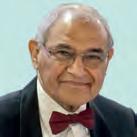

MEMBERS 24 WINTER 2022 Milestones
Professor Rashid Gatrad
WASUP
The United Nations Convention on the Rights of the Child
(Article 23) right to lead a full life if you have a disability
The United Nations Convention on the Rights of the Child (Article 31) right to rest, relax and play
STARTER FOR TEN
We put 10 questions to a consultant paediatrician and his paediatric trainee
Dr Ollie Bevington
Consultant Paediatrician & RCPCH College Tutor, Royal Hampshire County Hospital, Winchester. @ollie_bevington


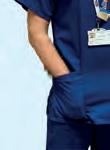
1) Describe your job in three words.
Full-on, interactive, juggling.
2) After a hard day at work, what is your guilty pleasure?
I don’t really believe in feeling guilty about things. I enjoy a bath with red wine, followed by bingeing something sci-fi related.
3) What two things do you find particularly challenging?
The constant game of jenga with the rota is exhausting. The rise in mental health patients without sufficient pathways or infrastructure to support these young people and their families.
4) What is the best part of your working day? Seeing one of my oncology patients come in for chemo dressed as their favourite superhero.
5) What is the one piece of advice you wish you could impart to yourself as a junior trainee?
“Why didn’t you take time out and jump off the training wheel for a bit?!” (I trained full time going from FY1 to consultant without stopping).
6) Who is the best fictional character, and why? Doctor Who. They get to travel in time in a cool box, meet different people and get to reinvent themselves from time to time, yet retain their past experiences.
7) What three medications would you like with you if you were marooned on a desert island filled with paediatric patients?
Salbutamol, Co-Amoxiclav and good old-fashioned Paracetamol.
8) If you were bitten by a radioactive gerbil, what would you like your superpower to be, and why?
Teleportation. No more airport lounges for me. It would also make nipping back and forth across the hospital effortless and I wouldn’t have to worry about parking. The time I would save!
9) What is the single, most encouraging thing that one of your colleagues can do to make your day?
Say that they learned something from me.
10) How do you think you and your colleagues can inspire the next generation of paediatricians?

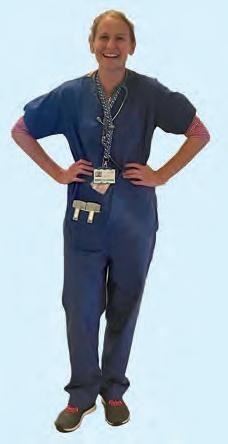
Remain inquisitive, always keep a sense of humour, and don’t get dragged down by the system. We trained to care and look after CYP, not run for political office or balance an account book.
Dr Sophie Cottam
Paediatric Registrar, Royal Hampshire County Hospital, Winchester
1) Describe your job in three words. Fun, varied, interesting.
2) After a hard day at work, what is your guilty pleasure?
Going to the beach for a picnic tea in the summer and putting the kids to bed late on a school day.
3) What two things do you find particularly challenging?
Fitting in non-clinical commitments with no designated time. Speaking to young people with mental health illness as I feel ill-equipped to do so.
4) What is the best part of your working day? The team I work with – we have a lot of fun, and they make the working day a pleasure.
5) What is the best advice you have received as a trainee? I was advised to go and sit in on clinics of specialties you feel less confident in as it will help in your own outpatient practice… and it has!
6) Who is the best fictional character, and why? Merlin the wizard because I quite fancy being able to do a bit of magic.
7) What three medications would you like with you if you were marooned on a desert island filled with paediatric patients? Co-Amoxiclav, Paracetamol and Chlorphenamine.
8) If you were bitten by a radioactive gerbil, what would you like your superpower to be, and why? I would like to be able to fly so I never had to sit in a traffic jam again.
9) What is the single, most encouraging thing that one of your colleagues can do to make your day? Make me a cup of tea and talk about holidays and life outside of work.
10) How do you think you and your colleagues can inspire the next generation of paediatricians? Always stay upbeat and enthusiastic – working with children is great fun. The clinical medicine itself is very varied with the huge age range, so it’s easy to stay interested, and hopefully we can show the juniors who are considering paediatrics how much the specialty has to offer.
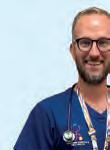
MEMBERS
KEEP IN TOUCH Milestones WINTER 2022 25
@RCPCHTweets @RCPCH @RCPCH milestones@rcpch.ac.uk
BOOK: ICE MONSTER
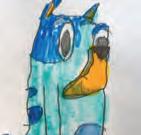 by David Walliams
by David Walliams
THE ICE MONSTER is about a girl in Victorian London, who brings a woolly mammoth to life. Elsie escapes from her horrid orphanage and she's lonely until she meets Dotty. Dotty is a cleaner at the Natural History Museum. They become friends and, with a professor, bring Woolly to life. Elsie rides on Woolly's back and they try to take Woolly back to her home in the North Pole, but come across various obstacles.

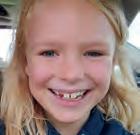

I liked this book because Woolly made me laugh with her funny noises. I enjoyed Elsie meeting Queen Victoria because I've recently been learning about her. The book is illustrated by Tony Ross and I like his drawings because they're quite messy. This book is unlike any story I've read before and at times I felt nervous excitement because I didn't know what was going to happen next. I'd recommend this book to people of any age who enjoy stories that are funny, silly and adventurous.
 Dr Alice Le Blond
Dr Alice Le Blond
ST6 Paediatric Registrar Noah’s Ark
Children’s Hospital for Wales, Cardiff
DRAGON BYTES BASICS

DRAGON BYTES BASICS (DBB) is our podcast for healthcare undergraduates or foundation trainees interested in paediatrics. The podcasts were originally based on Cardiff and Swansea Universities’ medical curriculums for paediatrics, but are just as relevant to those outside Wales! We break up topics into short, digestible episodes and speakers often suggest top tips for exams, useful resources and how to put learning into practice on placement. They’re easy to listen to on the go, so ideal for busy

students and trainees.

I’m the DBB student team lead. There are six students on the DBB team from Cardiff and Swansea Medical Schools. I work alongside the students to identify consultants, registrars and advanced nurse practitioners to interview on the areas of paediatrics that they are most passionate about.
Collaborating with medical students is great! Like clown fish and anemones, as seen in Finding Nemo, we have a mutually symbiotic relationship. In other words, it is beneficial to both clinicians and students. The students on the DBB team know what they need to know and how they’d like it presented. We as clinicians can share our experiences and knowledge, while hopefully inspiring more students to #ChoosePaediatrics
BLUEY IS ABOUT a family of dogs who live in Australia. They make up lots of funny games with their family and friends. Bluey is a blue six year old dog and Bingo is her orange and white younger sister. They live with their mum and dad, Chilli and Bandit. They have lots of friends who are all different types of dog. Bluey makes me laugh and reminds me of my family. I like the accents – Bluey and Bingo have children's voices –and the bright colours, and seeing Australian scenery. I would recommend Bluey to anybody but especially children, mums and dads.
Francis Beynon
Fourth Year Medical Student Swansea University @FrancisBeynon
MAPPING ACROSS THE curricula at Swansea and Cardiff Universities, we have highlighted key common topics and learning objectives that we have used to structure the discussion with the clinicians, ensuring we elicit the important ‘need to know’ information in a succinct but informative manner. We’ve worked to keep the podcasts relaxed, and conversational in nature whilst targeting important topics within paediatrics so that they will appeal to students at other universities in the UK, and also to other disciplines such as
nursing and physician associate programmes for example.
Studying medicine in Wales provides opportunities to undertake placements across the whole country, covering a wide geographical area. Nevertheless, the paediatric community across Wales, from consultants to students, is quite unique, and has a ‘family’ feel. As medical students, we feel supported by the paediatric community, who often take the time and find ways to innovatively engage our learning, clinically, academically, and most importantly by having fun! We hope this podcast series contributes to these values.
Search for Dragon Bytes Basics on your chosen podcast platform. New episodes are released fortnightly on Mondays. #DragonBytesBasics
MEMBERS 26 WINTER 2022 Milestones
TV: BLUEY
Aged 8 Ethel Aged 5
Freya
Wellbeing
Understanding the culture of wellbeing
Sarah
Webb
explores what wellbeing means to staff
Sarah Webb Advanced Nurse Practitioner Birmingham Women’s and Children’s NHS Foundation Trust @Littlesarahwebb
HAVING
WORKED IN paediatric critical care for over 20 years, it has always been evident that the wellbeing of staff has not only a significant impact on the individual, but on the whole team, and it is this that impacts the culture and the overall patient experience. Evidence of this across healthcare is now growing with greater focus being placed on recognising the importance of enhancing staff wellbeing. A national study on the prevalence of burnout in nurses and doctors working in intensive care was undertaken in 2020. The study revealed how doctors and nurses working in paediatric intensive care are at a higher risk of burnout, moral distress and PTSD.
This study, and many others, now make strong recommendations that a focus on improving and supporting wellbeing needs to be a priority, and more qualitative research should focus on exploring and understanding the factors contributing to the high levels of burnout and moral distress that are impacting wellbeing. Only then can interventions be recommended that positively impact wellbeing and therefore the patient experience.
In 2019, Birmingham Children’s Hospital, in partnership with Aston University, successfully gained funding to embark on exploring some of these ideas. A qualitative research approach was taken to
first understand what the concept of wellbeing means to staff working in critical care in order to generate the research themes to take forward.
Doctors and nurses working in a 31 bedded paediatric critical care unit were interviewed using a semistructured, appreciative enquiry approach. This allowed wellbeing themes to be generated from individual responses that would form the basis for future research.
The benefit of appreciative inquiry is that it encourages the exploration and discussion around a particular topic area. It focuses on the positive aspects and encourages reflection that allows people to think about what the future could look like. Practically speaking, the appreciative inquiry provided participants with a set of images that they could use to explore their feelings and ideas about what wellbeing means to them. Participants were encouraged to explore what the future might look like using the ‘dream concept’ which specifically allowed participants to imagine how things might be if their wellbeing needs were always met.
From this, three specific themes were identified:
1) The importance of being nurtured and supported at work. This included the importance of being part of the team and feeling listened to. Having this support at work really enables staff to develop self-efficacy.
2) The importance of nature. Being outdoors and away from the city, being active in nature, has a positive impact on wellbeing. This is about walking, running, cycling and swimming – keeping nature in our lives.
3) Social support. Having social support outside of work – friends and family to talk to – away from work, is vital to people’s wellbeing.
This study demonstrated that although wellbeing does have different meanings for people, there are common themes that are relevant to us all and impact the culture that we work in. Looking at ways to focus on ensuring we deliver these themes is vital to improving the wellbeing of us all when we are at work.
What was really interesting was that participation in the study itself really enhanced wellbeing. We ran the appreciative enquiry using both Zoom and group sessions, and feedback was that being able to talk about wellbeing in this format made people feel better and improved their wellbeing as they felt heard. Positivity breeds positivity and talking to each other inspires change. This should be the focus for us all going forward.
Read the full study: https:// bmjopen.bmj.com/content/ bmjopen/12/4/e056742.full.pdf

WELLBEING Milestones WINTER 2022 27
Inspiration under pressure – child neuro-disability services in Palestine
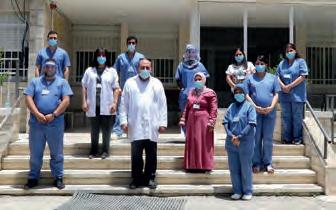
The Revd Dr Mich Lajeunesse interviews Dr Waddah on his challenging role
OUR increasingly stretched NHS, it’s not often that you come across a truly inspirational service, but that’s what I discovered when I visited the Jerusalem Princess Basma Centre (JPBC) this summer. The centre provides child development, behaviour support and rehabilitation services to Palestinian children with disabilities and their families in East Jerusalem, the West Bank and Gaza. Dr Waddah Malhees is a Consultant Rehabilitation Paediatrician and Medical Director of the Child Rehabilitation Centre. He has worked at JPBC since he came for a ‘one-year’ placement back in 1992! The service has seen transformation under his leadership. He was off-site when I visited, but I had the pleasure of catching up with him on a video call when I returned to the UK.
The Revd Dr Mich Lajeunesse Consultant Paediatrician Southampton Children’s Hospital @michlikequiche
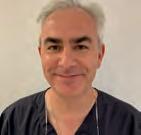
What’s special about the JPBC?
The involvement of the family as a partner in our multidisciplinary team. From the very first meeting, they are part of the decisionmaking process. Most admissions are for two–three weeks and mothers are enrolled on the Mother and Family Empowerment Programme at the same time as their child is receiving residential treatment. This sometimes involves helping the family to think beyond the social stigma that disability
INcarries. We hear the needs of the mothers, but we offer education, communication and play, to help enlarge their vision. Our aim is the integration and participation of their child with disabilities in their family and community, which not only transforms the life of the child but also the opportunities for the whole family.
What are the difficulties that families face?
Mothers of disabled children are often blamed and discriminated against by society. They feel isolated from family and their community and are often unable to seek the help or early intervention that their child needs. We try to help and empower the family to think beyond the social stigma.
What resources do you have?
We are a multidisciplinary team including a rehabilitation doctor, a paediatrician, physiotherapists, occupational therapists, speech and language therapists, social workers, nurses and a psychologist. We have a partnership network with 16 communitybased rehabilitation organisations in the West Bank, run a clinical programme for therapists in training with four universities and colleges and are the main referral and resource centre for the Palestinian population.
What are the current challenges?
There are many, but perhaps the economic challenges – especially after COVID – weigh most heavily on families of children with disabilities. Travel from Gaza and the West Bank is a challenge because of the restrictions,
costs and distances involved. Support from the international communities had declined –even before the pandemic.
How would you like to see services develop over the next five years?
We recently celebrated the introduction of our new mobile van for use by our Outreach Team. This will enable us to reach more children in isolated areas in the West Bank. But the Outreach Programme still needs to be resourced and extended. I will only feel happy when every child with a disability in Palestine has the same opportunity as every other child. This is my aim and my hope.
How could UK paediatricians help?
We would like to establish a professional network of support and mutual learning, to share practice and innovation with UK paediatricians. We plan to hold our first virtual network meeting in English later in the year. We also welcome practical support here in Jerusalem from paediatricians who speak Arabic.
If you would like to be part of the UK Basma network, please contact Julieann Sewell on julieann.sewell@basma-centre.org
28 WINTER 2022 Milestones
INTERNATIONAL
Dr Waddah and his colleagues
Navigating the NHS as an overseas paediatrician
Dr Gehan Salama Ali shares her advice on settling into the NHS
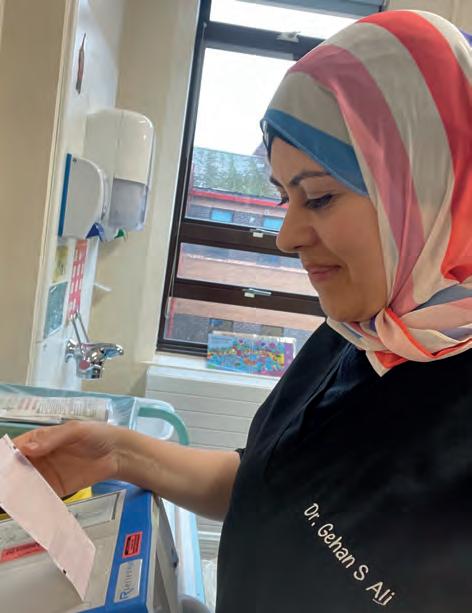
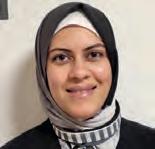
IN2006 , I graduated from Ain Shams University Hospital in Cairo. Before moving to the UK, I had a lot of experience in paediatrics, having worked in both Egypt and Saudi Arabia for more than nine years. I started my career in the NHS in 2020 (just at the start of the pandemic), which came with two challenges: the spread of COVID and the pressure of my first post in the UK.
At first I struggled to comprehend how the NHS worked, so for the first few months work was quite stressful. I was worried because I wasn’t sure whether everyone on my team recognised that there would be a substantial difference between the way I practised in my own country and the way medicine is practised in the UK. I attended a Welcome to UK Practice session, which allowed me to ask questions, and understand how the system works. After a few weeks, I decided to ask my colleagues and seniors any questions that came to mind, which I found to be a good way of learning.
Learning the NHS way
English is not my first language, but I listened to different radio channels and watched TV programmes to expose myself to the various accents and general knowledge, which helped me a lot.
One of the earliest obstacles I had was understanding the duties and responsibilities of each member of the
team, as well as how I should deal with various specialties. However, my first job was in a tertiary hospital, which taught me a lot about interdisciplinary teams, quality improvement projects and how to update guidelines. I kept asking questions and took note of comments about my progress and learning. I didn’t mind any negative criticism since it pushed me onward. After four months, the team was happy to progress me to the registrar level.
Reaching out
Feeling alone and frightened was a major concern for me in the first few months, despite the fact that I was living in London. I blamed myself for feeling that way. Having contact with family and friends made a real difference to me. By the end of the first year, I’d discovered a terrific group of likeminded female doctors near my house. We used to go out together to visit nice places and museums in London.
I was also able to communicate with other doctors via an online community. Here we could overcome our negative feelings by sharing them. I recognised that everyone may feel anxious and stressed in their first UK post. It was reassuring to know that I was feeling just like any other new overseas doctor.
My advice is to try and get to know your neighbours and be open and friendly. Spend time outdoors in green spaces, exercising and listening to podcasts. If the weather is cold and wet, you can still have a nice time indoors – try visiting coffee shops, swimming pools, leisure centres and gyms.
If you need more support, do not be shy, speak to your educational supervisor. They can guide you and give you the support you need.
We are all here for you, so take care of yourself.
Milestones WINTER 2022 29
Dr Gehan Salama Ali Neonatal Registrar Singleton Hospital, Swansea
INTERNATIONAL
Dr Gehan Saalama Ali navigates the NHS
A DAY IN THE LIFE
“We are in a privileged position”
Dr Peter Donnelly Consultant Paediatric Intensivist Royal Hospital For Children, Glasgow @drpeterdonnelly
I decided to become a paediatrician after working as an FY2 in a DGH paediatric department. Coercion from my consultant at the time certainly helped, however, I loved working with people on the same wavelength as myself (usually the toddlers). I particularly enjoyed new-born resuscitation and this ignited my interest in all things dramatic and ‘intensive’. I also appreciated the ability within paediatrics to ‘find your people’ and explore the various sub-specialty areas.
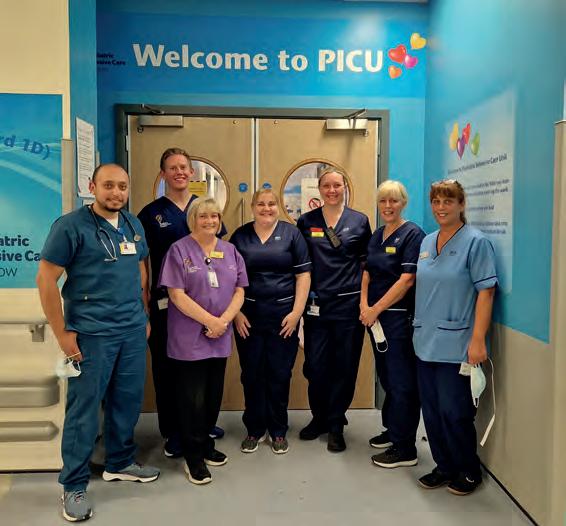
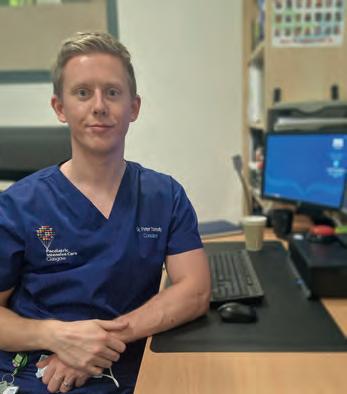
My typical working day involves copious amounts of caffeine whilst striving to provide witty banter. Service provision days are the most straightforward, involving teaching ward rounds, sub-specialty MDTs, family updates and departmental teaching. Non-service days are much more variable depending on which hat I am putting on that day (sometimes multiple hats if I am feeling excitable). My non-clinical roles include working as a Foundation Programme Director, a member of the UK Paediatric Critical Care Society (PCCS) Council, lead for local PICU Peer Support & Wellbeing and also previous chair for the UK PCCS Wellbeing Special Interest Group (SIG).
The most difficult part of my job is that there are a number of complexities to working as an intensivist. The sphere of intensive care medicine is changing to include larger numbers of chronic patients including graduating neonates, complex neurodisability and long-term tracheostomy ventilation. These patients require significant resources to facilitate progression through the system and it is not unusual to have a bottleneck in resource allocation resulting in a prolonged PICU stay. The impact this has on PICU throughout is significant and can at times be demoralising. In addition, the increase in high profile ‘end of life cases’ is noticeable and carries with it an emotional burden for all involved.
The best part of my job is working with a great bunch of friends and colleagues. From holiday chats with Phyllis (PICU Housekeeper), dancing with Jeanna (our Stores Manager) to daily hugs for Ginny, Anne and Sally (PICU Clerkess’) we have a fab camaraderie that keeps the days entertaining. Our unit is a quite close-knit team with a keen focus on wellbeing, support, civility and job satisfaction which is a great ethos supported from all levels of leadership.


My most memorable moments are when you have truly made a difference. I am particularly proud to have lead on the formation of the UK PCCS Wellbeing SIG through which we have performed and published a number of UK-wide pieces of research whilst driving a wellbeing agenda at national level. I am also proud of my involvement with the development of a peer support network within my hospital and seeing the difference this has made. From a clinical perspective I find the ability to provide good family centred care, especially with reorientation of care, particularly rewarding – we are in a privileged position to work alongside families during such difficult times.
When I’m finished work,
I tend to stay pretty busy – it’s easier to talk about relaxing than actually doing it! I go to the gym four times a week and then attend an Irish dancing class once a week – has to be done when your little brother dances professionally! If I am not out gallivanting then I am planning a surrogacy journey which is an exciting adventure full of rollercoasters!
KEEP IN TOUCH
30 WINTER 2022 Milestones @RCPCHTweets @RCPCH @RCPCH milestones@rcpch.ac.uk
Peter with his colleagues at the Royal Hospital For Children in Glasgow
Peter loves that each day can be very different
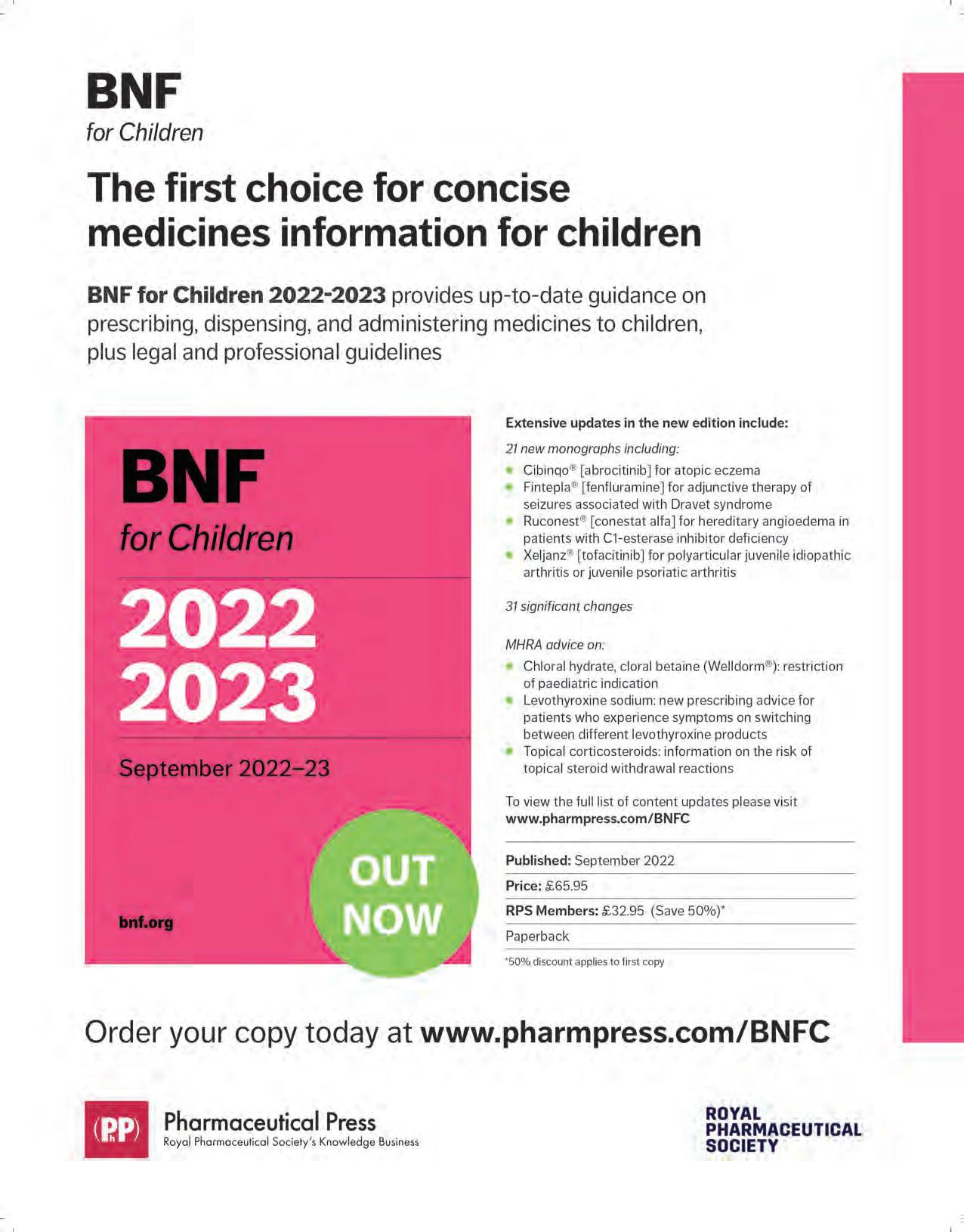
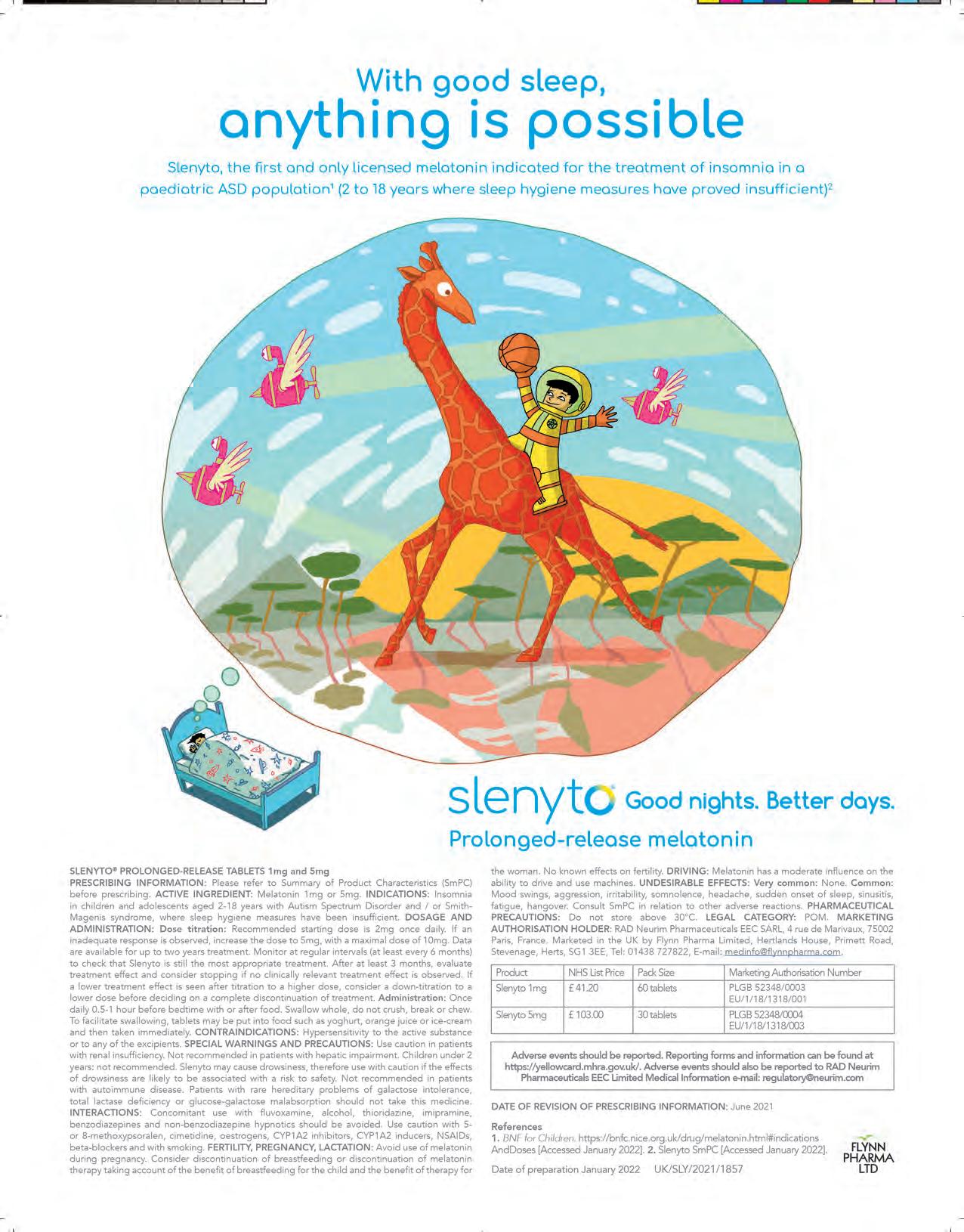
































 Emma Sparrow
Emma Sparrow









 Dr Ian Sinha Consultant Respiratory Paediatrician Alder Hey Children’s Hospital @wheezylikesund1
Dr Ian Sinha Consultant Respiratory Paediatrician Alder Hey Children’s Hospital @wheezylikesund1















































 Dr Alistair Thomson Consultant Paediatrian Mid Cheshire Hospitals NHS Trust Chair of the MindEd @MindEdUK
Dr Alistair Thomson Consultant Paediatrian Mid Cheshire Hospitals NHS Trust Chair of the MindEd @MindEdUK












 Dr Richard Daniels Paediatric Registrar (OOP) Humbl @DrRDaniels
Dr Richard Daniels Paediatric Registrar (OOP) Humbl @DrRDaniels




 Dr Ashish Patel
Dr Ashish Patel














 by David Walliams
by David Walliams



 Dr Alice Le Blond
Dr Alice Le Blond













